
























Family members of hostages held in Gaza for 159 days addressed a packed All Party UK-Israel Parliamentary Group solidarity event in Parliament yesterday.
Parliamentarians and Peers heard the harrowing events of the October 7 terror attack by Hamas.
The message from all the speakers, part of the Hostages and Missing Families Forum, was loud and clear… Enough talking, Bring the hostages home.
Amongst those giving testimony was Itay Regev, 18, released from Hamas captivity after 54 days.
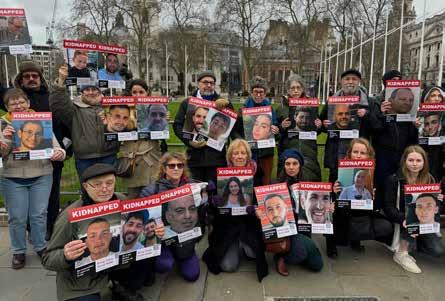
Itai was kidnapped with his sister Maya and her best friend Omer Shem Tov. Itai was held with Omer and is doing everything he can to get his friend back.
Recalling his time in captivity, he spoke movingly: “We imagined freedom when we


has stopped, bring everyone home now.”
Amit Levy’s sister Naama, 19, was kidnapped from Nahal Oz. She is one of the youngest female hostages held in Gaza.
He said: “Is she alone?
Does she have any one to talk to? She is suffering the worst type of brutality. I can’t imagine what she’s going through every day. The situation is a nightmare. We need to stand on the right side of history. Time is running out.”
Asked how his family was coping, Amit said: “My mum can’t sleep. We







Continued from page 1
“We are thinking of him every second of the day, he is an innocent civilian. Hamas is a terror organisation. We do not know anything, please help us, talk about it. It’s not just our fight.”
Amit Shem Tov’s brother Omer, 21, was kidnapped from the Nova festival site. His parents are one of the founding families of the forum.
He said: “The clock is ticking, time is urgent, we have no time.”
The delegation included Shira Matalon, niece of Eli and Yossi Sharabi, kidnapped from kibbutz Be’eri. Inbar Ohel, sister of Alon, 23, kidnapped from the Nova festival. Rotem Kalderon, son of Ofer kidnapped with his two children Erez and Saar from kibbutz Nir Oz. They were released.
Roni Adar, sister of Tamir, kidnapped from kibbutz Nir Oz and declared murdered in captivity. Amit Sarusi, sister of Almog, 27, kidnapped from the Nova festival. His girlfriend Shahar was murdered. Hila Kupersthein, sister of Bar, 21, kidnapped from the Nova festival.
Dame Margaret Hodge, who co-hosted the APPG, Conservative, Labour and Liberal Democrat Friends of Israel event, vowed to carry on raising the hostages plight in Parliament.
“To be so young and experience this horror is unimaginable,” she told the group, aged 16-26. “We want the fighting to stop
and hostages to come home.”
During parliamentarian questions, Andrew Mitchell MP, told the group the terror attack was a “pogrom” and the “worst violence since the Holocaust”.
“We are doing everything we can every day to get the hostages out,” he added. “We are working with our allies, we want to get them out in the shortest time possible.”
A delegation member said Hamas was using half truths and information was being weaponised.
It was also essential to keep the hostages stories in the media.
MPs promised to redouble efforts to keep the plight of the hostages on the parliamentary agenda.
David Barr, whose sister-in-law Naomi was murdered on Kibbutz Alumin, addressed Shenley Synagogue on Sunday evening as part of the efforts to keep telling the hostages story.
He said: “We are stuck on 10/7 until we get our hostages back. Everyone knows someone. For the hostages it’s unimaginable. Life has been turned upside down. We go to shiva after shiva after shiva. We are not dealing with normal terrorists. They are monsters.
But we are in it together in Israel. We are not an army of revenge, we set high moral standards even at times of war. Our soldiers take our citizens under fire to safety. We will make secure borders for Israel again. The main thing is to bring the hostages home.”





Rabbi Tzvi Kushelevsky, head of the Heichal HaTorah Yeshiva in Jerusalem, has been blessed with a first child at the age of 88. In his words, “never, ever give up - Hashem is capable of anything”
Rabbi Kushelevsky, who lost his first wife, the daughter of Rav Leib Gurwicz zt”l, the Rosh Yeshiva of Gateshead at 82, remarried a 51-year-old woman, Mrs. Rochel Daniella six years ago. Their wedding took place at Yeshivas Heichal Hatorah just a week after the shidduch was made. Rav Moshe Sternbuch was the
mesader kiddushin.
Mrs Rochel Daniella gave birth to their firstborn at Hadassah Medical Centre in Jerusalem on Sunday.
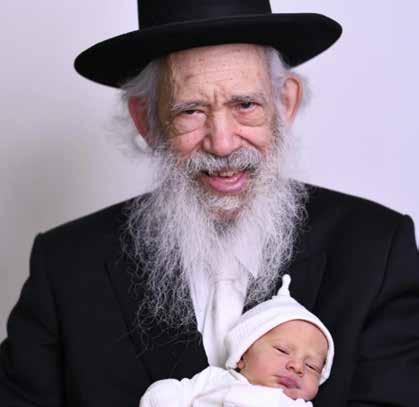




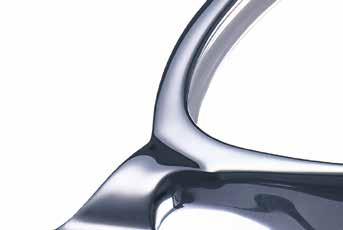

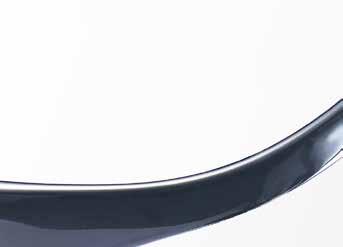
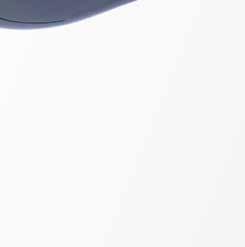










Foreign Affairs Minister Israel Katz addressed an emergency session of the UN Security Council this week following a damning report into Hamas’ sexual crimes during the October 7 massacre.
During an impassioned address, Katz demanded the 15 member states exert maximum pressure on Hamas to immediately and unconditionally release all hostages, to declare Hamas a terrorist organisation and impose sanctions on Hamas leaders.
Pramila Patten’s UN Sexual Violence in Conflict report gained global traction.
The publication detailed “clear and convincing information” of torture by Hamas against Israeli women during the October 7 terror attack and against hostages held in captivity in Gaza.
Before a delegation of 40 hostage families present, Katz said: “I have come here to protest, as loudly as I possibly can, against the crimes against humanity committed by Hamas murderers, carried out with the clear approval of their religious leaders to terrorise Israeli society.”
Katz criticised the UN for remaining silent regarding Hamas’ brutal actions more than five months ago.
“Since October 7, the United Nations has convened 41 times and has neither condemned nor denounced the brutal crimes of Hamas,” he said.
Discussing the terror group, Katz raged: “Hamas is the sole entity responsible for the crimes committed against humanity.
“Hamas killers breached the borders and attacked innocent Israelis who were peacefully in their homes and beds in kibbutzim, villages and cities. Young people, boys and girls, came from all over the world to participate in the Nova Festival, a festival of peace and happiness. Hundreds of them were surrounded, attacked from all sides and brutally slaughtered. According to the UN report, this was not an act of war. These acts were the highest
level of crimes against humanity.”
He continued: “Hamas’ crimes are even more severe than the acts of terror perpetrated by al-Qaeda, ISIS, and other terrorist organisations that have been sanctioned by the United Nations.
“Many countries have declared Hamas a terrorist organization, including the US, Australia, Canada, Japan, Paraguay, New Zealand, the United Kingdom and the European Union. Do not turn your head away from the facts. Hamas must be declared a terrorist organization and face the harshest sanctions.”
Noting the Muslim world was celebrating the beginning of Ramadan, Katz noted: “Hamas does not speak for the Muslim world, and we ask you to condemn the crimes of sexual violence committed by these barbarians in the name of the Muslim faith. I demand that the UN Security Council exert as much pressure as possible on the Hamas organisation to immediately and unconditionally release all the abductees, who today, as we speak, are being abused and assaulted, and are in great danger.
Erdan, Mai Golan, Minister for Social Equality and Promotion of the Status of Women, and Brig. Gen. (res.) Gal Hirsch attended.
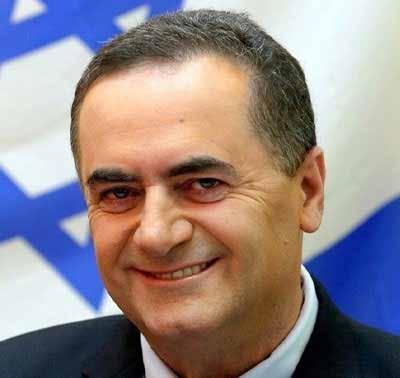
Katz thanked the US, France, United Kingdom and Japan for calling for the emergency Council meeting. Following the global reaction to Patten’s report the European Jewish Congress voiced its astonishment at a lack of action from European Union institutions. The EJC were particularly concerned given its timing to International Women’s Day.
Patten stated “cruel, inhuman and degrading treatment” may be continuing against hostages “forcibly removed” from Israel.
“It is unthinkable (such) violence against women should be utilised as a deliberate action in a conflict shown daily across our screens throughout Europe… the institutions of the EU have absolutely nothing to say on the matter,” said Raya Kalenova, EJC Executive Vice President.
evidence of sexual violence.
“Many Israeli women remain in constant threat and are even still likely experiencing sexual abuse at the hands of these terrorists,” Kalenova said. “We will never stop demanding their immediate release and that of other hostages. And we will not cease calling on the international community and the EU to work for that release.”
Kalenova added: “The campaign to save these women must lie at the heart of all our international campaigns to liberate women from abuse.”
Patten called on Hamas to “immediately and unconditionally” release all hostages and ensure their protection.
President Chaim Herzog described the report as being of “immense importance”.
Patten called for a humanitarian ceasefire and urged any ceasefire agreement to acknowledge the importance of recognising sexual violence as a key issue.
She offered sympathy and solidarity to all civilians impacted in the region since October 7.
Patten was invited to Israel by Erdan so she could witness the extent of the atrocities for herself and bring Hamas’ crimes to the attention of the international authorities.
In related news, Katz welcomed the arrival in Israel this week of former French Foreign Minister Catherine Colonna, head of the UN’s independent Review Group examining the actions UNRWA on 10/7.
Colonna is visiting Tel Aviv, Jerusalem, Ramallah and Amman.
“Please do all in your power to end this hell on earth… you have the opportunity to save 134 innocent lives. By doing so, you will show the world that the Security Council can be a shining beacon of justice and hope for all humanity.”
Israel’s Ambassador to the UN Gilad
The European Jewish Congress is astonished at the meagre response of European Union institutions following the release of the United Nations Special Representative on Sexual Violence in Conflict report last week.
The publication detailed “clear and convincing information” of torture by Hamas against Israeli women during the October 7 attack and hostages in Gaza.
The EJC are particularly concerned given its timing with International Women’s Day.
UN Special Representative, Pramila Patten stated that such “cruel, inhuman and degrading treatment” may be continuing against those held by Hamas terrorists in Gaza five months after bein ‘forcibly removed’ from Israel.
“It is unthinkable (such) violence against women should be utilised as a deliberate action in a conflict shown daily across our screens throughout Europe… the institutions of the EU have absolutely nothing to say on the matter,” said Raya Kalenova, EJC Executive Vice President.
“Where the international community has hidden behind all manner of excuses to pinpoint the scale of this horror targeting women, now the evidence is totally clear,” she added.
The EJC also highlighted silence of international human rights organisations, including women’s rights organisations, to the plight of Israeli women held by Hamas.
During a 17-day visit to Israel and Judai and Samaria, Patten and her team found victims, mostly women, with clear forms of sexual violence.
“Where the international community has hidden behind all manner of excuses to pinpoint the scale of this horror targeting women, now the evidence is totally clear,” she added.
During a 17-day visit to Israel and Judai and Samaria, Patten and her team found
Colonna will be shown evidence of Hamas link to the aid agency use of facilities including schools and medical clinics to store weapons and launch attacks.
Katz said that Israel was cooperating fully with the committee, established by UN Secretary General Guterres following Israeli revelations about UNRWA’s complicity in the Hamas massacre.
“Many Israeli women remain in constant threat and are even still likely experiencing sexual abuse at the hands of these terrorists,” Kalenova said. “We will never stop demanding their immediate release and that of other hostages. And we will not cease calling on the international community and the EU to work for that release. It is gratifying that the US, UK and France have urged the UN Security Council to investigate Hamas’s crimes, but the lives of these women remain at daily risk. The campaign to save these women must lie at the heart of all our international campaigns to liberate women from abuse.”
Patten, UN special envoy on Sexual Violence in Conflict, has called on Hamas to “immediately and unconditionally” release all hostages and ensure their protection.
President Chaim Herzog described the report as being of “immense importance”. Patten called for a humanitarian ceasefire and urged any ceasefire agreement to acknowledge the importance of recognising sexual violence as a key issue. She offered sympathy and solidarity to all civilians impacted in the region since October 7.
Foreign Minister Israel Katz, has called on eight member states, the US, Great Britain, France, Malta, Ecuador, Japan, Switzerland and Slovenia, to demand an urgent meeting of the UN Security Council.
Patten was invited to Israel by Erdan so she could witness the extent of the atrocities for herself and bring Hamas’ crimes to the attention of the international authorities.



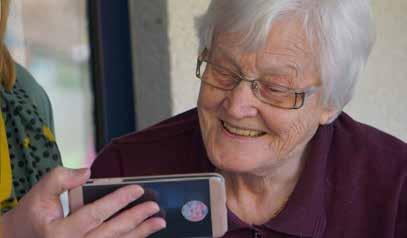



The 13th International Jerusalem Winner Marathon proved lucky with a record number of 40,000 runners from 80 countries completing the historic course last Friday.
Organisers ensured the event took place in solidarity with the IDF, security and rescue forces. Participants included 15,000 IDF soldiers in reserve and regular service, security and rescue forces and 1,800 international runners.
Melkamu Jember, 33, from Israel, triumphed in a time of 2:35:39. Second place went to Nega Mekete (2:41:33) with third going to Yotam Kaplan (2:43:38).
Jember received $3,750, Mekete $2,500 and Kaplan $1,250.
The route passed through 3,000 years of historic landmarks including the Knesset, the walls of the Old City, Sultan’s Pool,
rescue forces. Thanks to the thousands of IDF soldiers in the reserves and regular service and to the runners from the security and rescue forces who came to participate in the country’s largest sports event in the capital of Israel. We all hope for the swift return of all the captives to their homes and families, and for the speedy recovery of all our soldiers on the front lines. See you at the next marathon in 2025.”
The marathon coincided with International Women’s Day. Noah Berkman finished the women’s race first with a time of 2:55:42. Second place was awarded to Elena Tolstykh from Russia (2:58:22).
Participants signed up for the full marathon, half marathon, 10 km and 5 km races, family race of 1.7 km and a unique Communities Race.
The marathon build-up included an Expo and pasta dinner at the Cineman
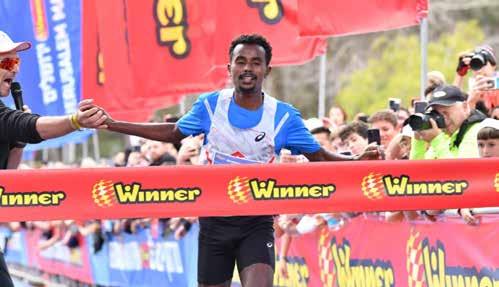
Mishkenot Sha’ananim, Mount Zion, the German Colony, Rehavia, the Path of the Prophets, Mount Scopus, Sakrah Park, Mount of Olives and other famous sites.
Jerusalem Mayor Moshe Lion ran the 5 km race with his coach, Izhak Vexler, who was injured in battles in the Gaza Strip. He said: “Since its establishment, the Jerusalem marathon has become one of the most experiential and professional sports events for every athlete in Israel and around the world.
I am proud we broke the all-time record for the number of participants and successfully held it, especially during this time.
“I am even more proud it took place as a tribute to the IDF, security and
City complex.
DJ Yarin Alouf, of Artifcacts, who played at a pre-race party, opened events, that included a mix he played at the Nova festival. Half-marathon runners unfolded a giant Israeli flag in a symbolic act at the start line at 6:29am, the same time sirens sounded on October 7.
Lion and Jessica Alter, partner of Ben Shemoni, a Jerusalem resident murdered in the Nova Party, started the half-marathon from the Clock Square in Jerusalem. Lion initiated the full marathon alongside Mia and Gabriela Leimberg, Jerusalem residents released after 53 days in Hamas captivity.
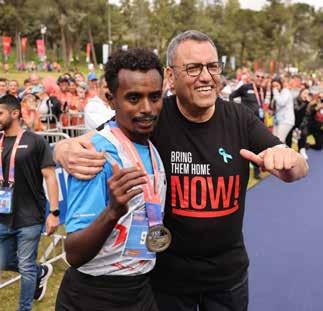
The 5K run featured thousands of participants, including Itzik Waxler, injured during the war in an encounter with terrorists
between the Jabalia refugee camp and Beit Lahia in the Gaza Strip.
Four hundred Okez unit fighters, led by the unit’s commander, ran in memory of Sergeant Arie Ziring, an intelligence officer, who fell in Gaza battles on October 7.
In honour of International Women’s Day, Dr. Shir Malka Shabbat, of Hadassah Ein Kerem, Ariella Rajuan and Liat PitroEmon, at the Jerusalem Municipality, and Kinneret Tzadok, of the Hapoel Centre took up roles at starting points.
A special 800-metre social run pro moted social awareness, participants included marathon runner Or Shizaf, a marathon runner and presenter of the marathon’s Saucony shoe, was injured during an encounter with terrorists in Khan Yunis.
partner in the event and marketed the official running shoe and race shirt. Additional sponsors include Hapoel Centre, Eldan, Cinema City, Riedman College, and Bezeq Business. The marathon was produced by ‘Electra Targat.’
Adrian Jacobs, CEO of Sage Nursing Home in Golders Green, completed his 8th Jerusalem Half Marathon raising almost £11,000.


The 10K run featured family and friends of Staff Sergeant Roee Weiser, a Golani soldier who fell on October 7.
A 12-person Bari mara thon team ran in memory of Hagi Avni, killed in Gaza. The triathlon team from Gaza communities, in cluding Kfar Azza, Nir Oz, Eshkol, Sha’ar Hanegev, and Hof Ashkelon, ran in memory of teammate Nadav Goldstein, murdered in Gaza.


Over 100,000 people attended the finish and festival at Sacher Park.

The marathon was organised by the Jerusalem Municipality in collaboration with the Jerusalem Development Authority, with support of the Jerusalem and Heritage Ministry, Culture and Sports Ministry and Tourism Ministry. Toto Winner were the main sponsors.
Sportswear company ‘Saucony was a
flag attached to his cap raised cheers along the route.
Adrian commented: “The atmosphere and encouragement from the crowds lining is unique and inspiring. Running through the streets of both old and new Jerusalem is awesome and exhilarating. Running out of the Old City through Zion Gate with a view of the Judean hills is inspiring.”
Veteran marathon runner Flora Frank completed the Jerusalem half marathon for Emunah and Norwood in under six hours.
Flora, wearing on her sweater BRING the HOSTAGES HOME, ran in memory of her late husband Herbert, brother Nissim and Daniel Sacks.
“Once again I felt so honoured and privileged to have participated in םילשורי שדוקה ריע,” she said. “Baruch haShem this was my 47th marathon including Tiberias, London and New York. There was a fantastic and overwhelming feeling of hope notwithstanding the current sad and terrible situation awaiting return if our precious hostages, soldiers and injured.
“All over the route I was moved by the massive posters with photos of the hostages. I personally adopted dear baby Kfir Bashir, tears welled in our eyes as we continually passed these images.”
“Approximately 40,000 took part in a choice of 1, 5, 10, 21 and 42 kilometres! I chose 21 kilometres only because one has to finish the 42 kilometres in under 6 hours.”
Flora hopes to speed walk the London Marathon on April 21 in six and a half hours.
“Thanks to all my sponsors, family and friends, whose wonderful generosity allows me to raise money for these two important and vital causes so dear to my heart.”
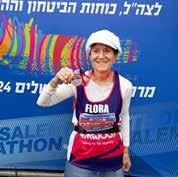




President Isaac Herzog’s visit to inaugurate the new Holocaust Memorial Museum in Amsterdam was marred by around 1,000 anti-Israel demonstrators.
Riot police were called into action according to reports. Signs read ‘Ceasefire now’, ‘Jews against genocide’, and ‘Stop Bombing Children. Activists called for a ceasefire.
Dutch Jewish anti-Zionist organisation Erev Rave organised the protest with the Dutch Palestinian Community and Socialists International.
Pro-Israel members took part in a counter-demonstration as police ensured the event took place at the city’s famous Portuguese Synagogue in the city’s Jewish quarter.
Herzog said the demonstration was aggressive but did not frighten anyone attending the ceremony.
Dutch King Willem-Alexander, Austrian President Alexander van der Bellen, Dutch Prime Minister Mark Rutte, and president of the German Federal Council, Manuela Schwesig were booed on arrival.
The Mayor of Amsterdam Femke Halsema and Jewish leaders from around the world attended.
King Willem-Alexander said: “This museum shows us what devastating consequences antisemitism can have.” In his address, Herzog recalled visiting the Netherlands with his father, Israel’s Sixth President, Chaim Herzog, an officer in the British army in World War II, on a state visit 40 years ago. He also spoke about his grandfather.
He said: “My father had taken part in the liberation of the Netherlands, liberating Dutch cities and villages, such as
Enschede, Nijmegen and Arnhem. He also liberated survivors from concentration camps. My grandfather, the First Chief Rabbi of Israel, Rabbi Isaac HaLevi Herzog, had come to the Netherlands right after the war to find lost Jewish orphans who had been hidden from the Nazis. So, being here is, naturally, deeply meaningful for me.
“The Jewish community of the Netherlands was decimated in the Holocaust. Too many were silent. Too many Dutch citizens aided the Nazis including people in positions of power. At the same time, there were those with courage who dared to stand up to the Nazi evil, Righteous Among the Nations, Cornelis Case and Amanda Vissers from Bussum. They hid a young Jewish couple, Andries Asher and Leni-Rivka Hoffman, under floor boards, when the Nazis repeatedly raided their home.”
Andries and Leni’s son, Yonah, and his family joined Herzog.
Herzog continued: “Yonah Hoffman was born in the Netherlands, in 1946, and was brought to Israel as a child. The story of the bravery of Case and Amanda, ‘Oma and Opa’ as they are called by Yonah’s own children, has been a living part of the story of the Hoffman family. Just over a month ago now, a tragic chapter was added. Major Yitzhar Hoffman, Yonah and his wife Leah’s son, was killed whilst bravely defending Israel after the horrific massacre of October 7. Moral integrity had saved Yitzhar’s family, and it defined him, too.”
Herzog added: “At this pivotal moment in time, this institution sends a clear, powerful statement. Remember the horrors born of hatred,
antisemitism and racism. Never again allow them to flourish. Unfortunately, ‘Never Again’ is right now. Because, hatred and antisemitism are flourishing worldwide, and we must fight it, together.”
Yad Vashem Chairman Dani Dayan attended the inauguration and said it represented a “crucial step” in honouring Holocaust victims and educating future generations about a dark chapter in history.
“As we bear witness to this historic occasion, we honour the memory of those cruelly and horrifically murdered during the Holocaust, recognise the selfless acts of kindness of those few Righteous Among the Nations and reaffirm our collective commitment to ensuring that the Holocaust is never forgotten,” he said.
The Holocaust museum, located at a nursery school, helped smuggle hundreds of Jewish children to safety during
the Nazi occupation in World War II.
The museum opened on Monday to mark 80 years since World War Two ended.
Before the Nazi occupation, the Netherlands had a Jewish community of 140,000 people.
Around 102,000 were murdered during the Holocaust.
During his visit, Herzog went on to visit The Hague where he meet with Prime Minister Rutte, President van der Bellen of Austria and other senior officials.
The President met with families of Israeli hostages visiting the country, leaders of Jewish communities and visited a Jewish school in the city.
In meetings, Herzog spoke about the struggle to secure the release of all hostages held by Hamas. He also stressed a need to combat global antisemitism and centrality of Israel in the diaspora.
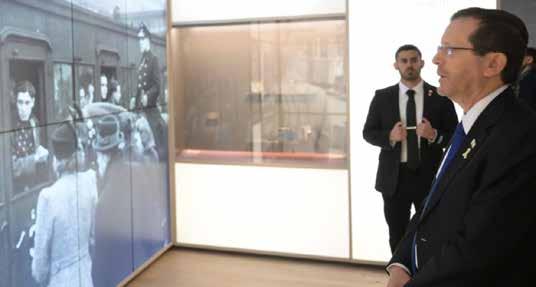
The Israel Innovation Authority, in collaboration with the Aaron Institute for Economic Policy at Reichman University, released a report for International Women’s Day regarding the women in tech research and development positions.
The data revealed 40% of women involved in R&D roles, a 130% increase over the past decade. In 2023, 38% of women held R&D positions.
However, women occupy a third of high-tech positions, falling short of a 43% target set by the National High-Tech Human Capital Committee, known as the Perlmutter Committee, for 2035.
This gap is pronounced for non-ultra-Orthodox.
Despite the slowdown over the past year due to the Gaza war and legal reform, the growth rate for women and men remains constant at 2.7%. However, women in administrative and business development roles has decreased from 51% in 2014 to 41% in 2024.
Dror Bin, IAA CEO, said: “The tech sector has been at the forefront of the Israeli
economy for many years, but there is still a way to go regarding gender equality. We see more women in core roles, but the growth rate is insufficient to reach gender parity goals. In 2023, about 3,500 positions were added for women in tech compared to about 6,700 positions for men. To bring about change, there must be a concerted long-term effort by the tech industry and relevant government entities to continue breaking the glass ceiling for women earlier in their career.”
The report includes two newly published research papers. The first, led by the Aaron Institute for Economic Policy in collaboration with the IAA, explores the connection between high school studies, salary, and employment in high-tech. The second, led by the Trump Foundation in collaboration with the IAA, examines gender wage gaps in high-tech and how job transitions impact disparities. Dr. Sergei Sumkin, Aaron Institute for Economic Policy at Reichman University, said: “Gender gaps in tech positions and the tech industry’s R&D positions are not a result of differences in ability or achievements between men and women,
but stem from different choices made by them at various stages of the education system. Since studies in advanced technological classes that allow for physics and computer science studies in high school are one of the prominent factors explaining the gender gap in employment in tech positions and the tech industry, access to tech studies should be provided to every student in Israel within the school framework or excellence centres. Additionally, attention should be paid to the professional explanation by the school staff regarding the contribution of tech skills to quality employment for female students.”
Eli Horowitz, CEO of Trump Foundation for Education, said: “The research shows, and parents who consider this important must know this, that the important choice for their daughters is already made in middle school. Those who choose and are accepted into the science excellence class in middle school go on to study physics, computers, and mathematics at a high level there. When choosing majors in high school, she has a great advantage over those who studied
in regular classes in middle school, where they did not study physics and computers at all. The problem today is that there are almost no female students in the excellence classes in middle school, and schools can and should change that.”
The Israeli tech industry mirrors global trends in gender representation, with women comprising approximately one-third of the workforce, aligning with countries like Poland, Germany, and France. Sweden boasts leadership in international equality rankings, its proportion of women in tech lags behind Israel at 29%. Estonia, a pioneer in digital transformation, showcases a high proportion of women in tech at 40%. In the US, the figure stands at 36.5%.
The Perlmutter Committee’s report calls for enhanced human capital and growth potential in tech, particularly among underrepresented populations. While most groups exceed growth targets by 2035, challenges persist, notably for Jewish women (non-ultra-Orthodox) and Arab women, who are not expected to reach a 2023 growth target of 80,000 positions.



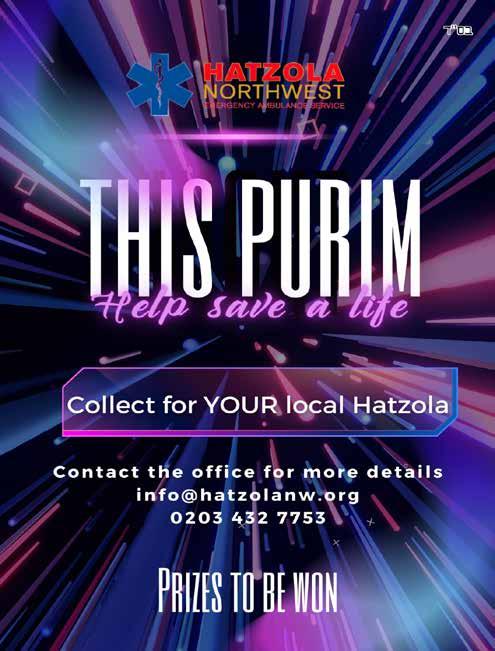
Rabbi Dr Raphael Zarum, discusses his new book Questioning Belief: Torah and Tradition in an Age of Doubt, with Gila Sacks in an online book launch this Sunday (8pm).
Gila, who has written a foreword for the book, will discuss its origins, purpose and contemporary relevance with the author.
In this original and thought-provoking work selected as a finalist for the 2023 Rabbi Sacks Book Prize and published by Maggid (Koren Publishers, Jerusalem), Rabbi Zarum, Dean of London School of Jewish Studies, responds to 12 challenging questions that confront the Torah today.
These are questions about the veracity of its narratives, the morality of its laws, and the beliefs it engenders. To address these questions, Rabbi Zarum, who holds the Rabbi Sacks Chair of Modern Jewish Thought, brings historical, scientific, and philosophical research to bear on classical Jewish sources, with surprising and stimulating results.
Jewish communities and diverse institutions. He has a rare ability to face up to uncomfortable questions, reject stock responses, and explore the issues in a way that is traditionally grounded and intellectually rigorous.
Who is the book aimed at?
Rabbi Zarum noted: “The book is aimed at many people in the mainstream community who have questions about G-d and the Torah. They might vary in their practice, but they wonder about certain aspects of Judaism that seem outdated or not quite in-line with modern sensibilities. And, I suspect that in the past, many of them have not received decent responses to their questions.”
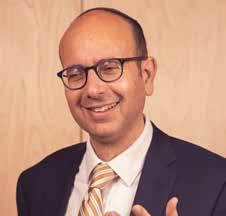
As in every book there are challenges in deciding the content to cover?
as keeping slaves and sacrificing animals, as well as the unfairness of collective punishment and the seeming elitism of being the ‘Chosen People’. Finally, in ‘Faith’ I give novel ways of understanding prayer and believing in G-d… and what if you don’t.”
Have you a favourite question or topic in the book?
Rabbi Zarum responded: “How to respond to the questions themselves. I don’t like quickfire retorts or cheap certainties. Good questions deserve to be addressed seriously. It is not foolish to doubt, on the contrary, it is honest and sincere. The Bible, Talmud and Midrash are a rich treasure trove of ideas that contain wonderful ways of finding meaning in our faith, even in this modern and fast-changing world.”
So, what have you learnt new from the book?
Rabbi Zarum is an acclaimed lecturer who has travelled the globe to teach in
Rabbi Zarum observed: “I have spent a long time listening to people and their issues with Judaism, so I chose a dozen topics that came up time and again. These are divided into three broad themes. In ‘Origins’ I discuss how to understand Creation, the Flood and the Exodus in light of modern science and archaeology. In ‘Ethics’ I explain why the Torah allows ancient practices such
Rabbi Zarum said: “When I began writing the book, I was questioning the Torah, but the more I studied and gave voice to the sages of our tradition, the more I realised that Torah itself is questioning us. Problems that seem to challenge the depth and veracity of the Torah actually challenge our modern way of life and the purpose of our existence. The process
moved me from a defence of Judaism to a re-evaluation of it for the modern age.”
Has there been any surprises in the narrative?
Rabbi Zarum commented: “The arguments that Abraham and Moses have with G-d are shockingly direct and harsh. How can mere mortals even think to challenge the maker of the universe? But the sages see these debates as healthy and what G-d always wanted. While there is a time for obedience, there is also a place for intense protest. It is surprising to realise that G-d craves our challenges.”

As for a sequel, he added: “There are always more questions to respond to, and that is as it should be.
But I am thinking of writing next on the process of education. The Talmud is replete with weird and wonderful episodes of teaching and learning. What, I wonder, can they teach us about how we pass on our traditions today. I relish the journey.”

It’s
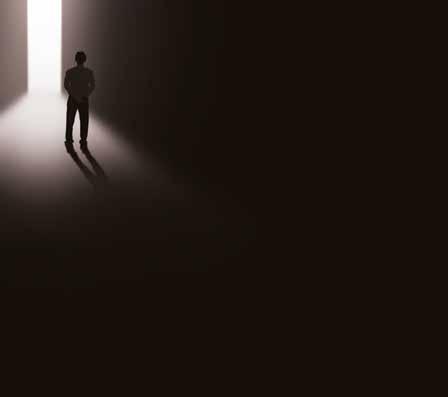
1)
2)

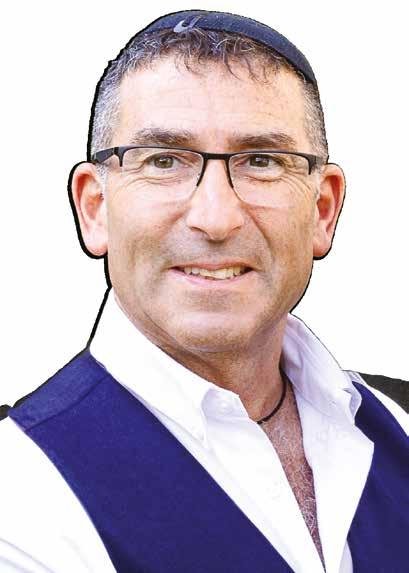






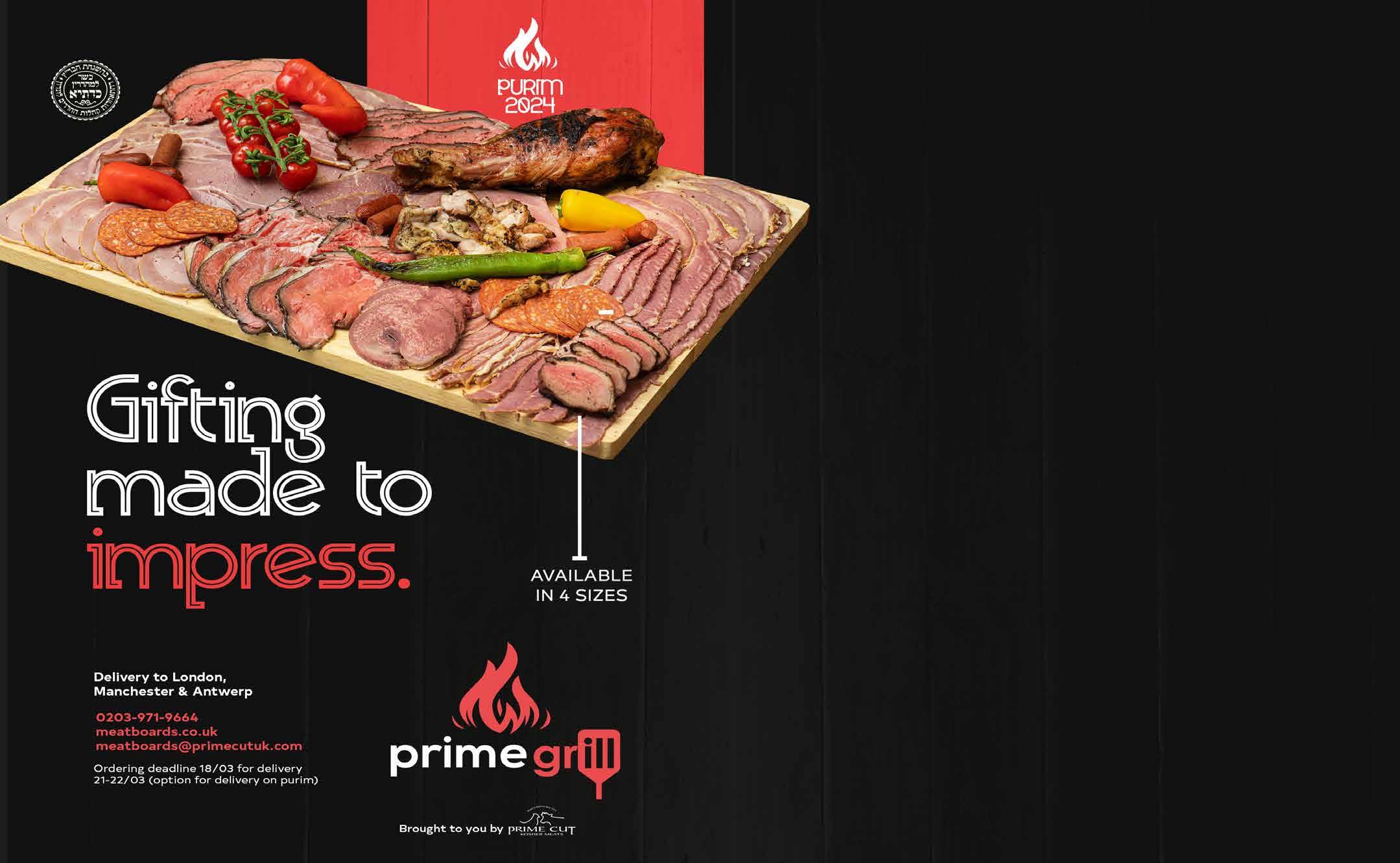

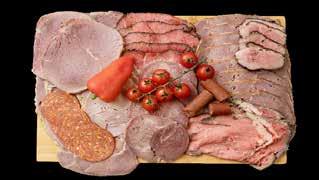
Medium Meat Board
35 x 25 cm / 14” x 10” In.
Whether you’re gifting or treating yourself, our Medium Meat Board promises a memorable culinary experience.
£99.00
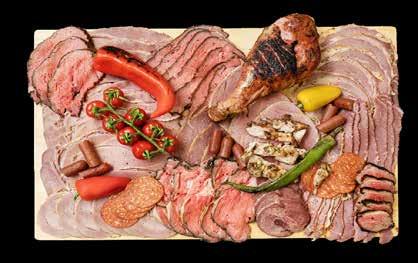
Extra Large Meat Board
60 x 40 cm / 24” x 16” In
Go big or go home with our Extra-Large Meat Board! Designed for the ultimate meat lover, this monumental platter is overflowing with an abundance of mouthwatering meats.
£299.00

Large Meat Board
43 x 32 cm / 17” x 12.5” In
Take it to the next level! Ideal for sharing with friends and family or as a centrepiece for your purim party.
£139.00
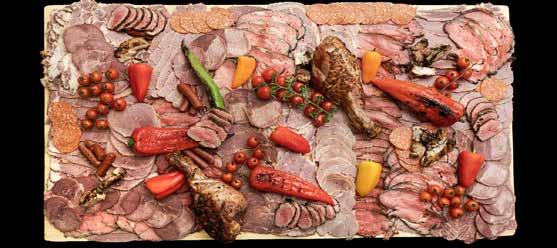
Supersized Meat Board
100 x 58 cm / 40x23” In
Prepare for a carnivorous extravaganza with our jaw-dropping Supersized Meat Board! Taking meat appreciation to new heights, this epic ensemble features an astonishing array of top-quality cuts. You might need that table extension!
£699.00
 OPINION PIECE
BY ROBERT FESTENSTEIN
OPINION PIECE
BY ROBERT FESTENSTEIN
It is said that if you want something done, ask a busy person. Presumably this is because the busy person is organised and so able to fit in an extra task when required. Maybe, maybe not.
Last Shabbat was devoted to Israel and our Shul (Shrubberies in Prestwich, Manchester) had an Israeli style kiddush and then a panel discussion on the current position in Israel and the UK followed by a Q and A. I was one of two panellists, the other being Anthony Dennison, co-chair of Northwest Friends of Israel.
One of the questions we were asked was how could a person make a difference. The answers were pretty much the same from me and Anthony. For him it is about having people outside Marks & Spencer in central Manchester on a Sunday talking to ordinary people as they go about their
shopping. Talking to them about Israel, Jews and how the media are biased, that there are not three million Jews in the UK and that Israel is not the wicked entity it is claimed to be.
For me, as President of the Zionist Central Council, it is about having additional people to help promoting guest speakers, organising petitions, writing to politicians and generally making a contribution to our declared policy of defending and promoting the democratic state of Israel.
Our joint experience is that it is very difficult to attract volunteers. I don’t know why. Standing outside a shop in central Manchester every now and again doesn’t seem too onerous, neither is writing a letter or helping arrange a speaker tour. Yet for reasons I don’t understand apparently it is difficult, or at least the lack of people beating a path to either of our doors says it is.
Maybe it is a new habit of not going out. The increase in use of social media means that meetings often take place online
Please note: The views of the letters do not necessarily reflect the views of this newspaper. Letters may be edited and publication is at the discretion of the editor.
Dear Editor
The words that find their way into Oscars acceptance speeches are not all instinctive, unscripted affairs. The winner, having already exhibited their craft with words and emotions to create a film worthy of the Academy’s highest recognition, knows they had the time to prepare even a basic acceptance speech, in which they once again put much thought into what they want to say to the engaged audience, and how they want to say it.
Against that background, the now deeply confusing words of Jewish director and screenwriter Jonathan Glazer, accepting the gong for “The Zone of Interest” on Sunday night, merit some unpacking. Glazer’s work was a masterful, even if divisive and controversial, delivery of a Holocaust movie. Anything
that warrants the highest acclaim from such figures as Steven Spielberg, who billed this film “the best Holocaust movie I’ve witnessed since my own”, merits recognition in artistic terms.
That Glazer decided, in his handwritten speech, to take a view on the ongoing conflict in Israel and Gaza, was not of itself uncontroversial or distasteful. Speeches at these ceremonies have been replete with appeals to political morality for several years.
But the problem was in both the words and
rather than in person. Almost everything now can be operated from a mobile phone. Turning on or off the heating, ordering a take away, shopping for food or clothes can all be done from the isolated comfort of your own home. There are fewer and fewer reasons for us to leave the house and perhaps that is why the number of volunteers is not as high as might have been expected, particularly in view of the increase in attacks on Jews in the UK.
Everyone has a part to play, whether it is standing outside talking to people, helping arrange meetings or even going to Israel to help there. There doesn’t seem to be a drive to encourage this. The campaign to ‘adopt’ a hostage is indeed one which is well motivated. There is more though to be done than put a picture on a seat in a Shul. Certainly, the hostages should not and must not be forgotten. What is just as important is to support Israel, and our community.
For most of us, we are facing unprecedented hostility and despite this, it is the same people trying to stand up for Israel
and British Jews. It doesn’t matter what the contribution is, as long as everyone makes an effort to get involved, however small that effort it might be, it is so much better than just sitting at home and hoping someone else will do the work.
The attitudes towards the British Jewish community and Israel will be formed and revised as a result of what is happening now in Gaza and on the streets of the UK. There is no time to just see what everyone else is doing. Get busy, involve yourself and make a difference, it is absolutely vital that you do, since if you do not, life post 7 October will not return to normal.
Robert Festenstein is a practising solicitor and has been the principal of his Salford based firm for over 20 years. He has fought BDS motions to the Court of Appeal and is President of the Zionist Central Council in Manchester which serves to protect and defend the democratic State of Israel.
in their delivery - the two very features of which Glazer has unwavering control in his line of work. For he opened his position with these words: “Right now, we stand here as men who refute their Jewishness and the Holocaust being hijacked by an occupation which has led to conflict for so many innocent people”.
Already, there have been various misinterpretations which incorrectly place the full stop after the word “Jewishness” or “Holocaust” - partly because Glazer had stopped at this point to regain his breath. In the full sentence, Glazer did not say he was refuting these things absolutely.
However, it is beyond perplexing for someone of Glazer’s ilk - for whom the choice, order and emphasis of words is a painstaking artistic craft - to fail to see the clear issues with this particular sequence of words. Think, with your writer and director’s hat on, of how many ways you could have presented a scathing view of the Israeli government’s response to the worst attack on Jews *since the Holocaust*, without placing it directly adjacent to your Jewishness and the

Holocaust. Or without placing the noun “occupation” at the very front of your position, with not a single mention of Hamas thereafter. And all of that before even choosing to say you “refute” those aspects of your identity being putatively “hijacked” - curiously odd words to use at the best of times. Even to say he refuted “the idea” of his Jewishness and the Holocaust being hijacked would have softened the blow.
He didn’t. By the end of that first sentence, the damage was already done, the quick reference to hostages relegated to a mere footnote in its shadow. This was a creative choice - just as it was a (much-debated) creative choice not to make the film specifically about Jews.
The Zone of Interest now goes down into the Academy’s hall of fame. But Glazer might wish to reflect on the BAFTA acceptance speech of his producer James Wilson, who (in words also heavily criticised) warned against the idea of “selective empathy” during the current conflict. If Glazer using his Jewishness and the Holocaust as a shield and then immediately as a sword to identify only one party to a conflict it didn’t start, what is that, if not selective empathy? Glazer might have walked away with an Academy award for his endeavours, but with the word choice in this speech, it seems the screenwriter risks having learned nothing from them at all.
Naji Tilley, London, NW4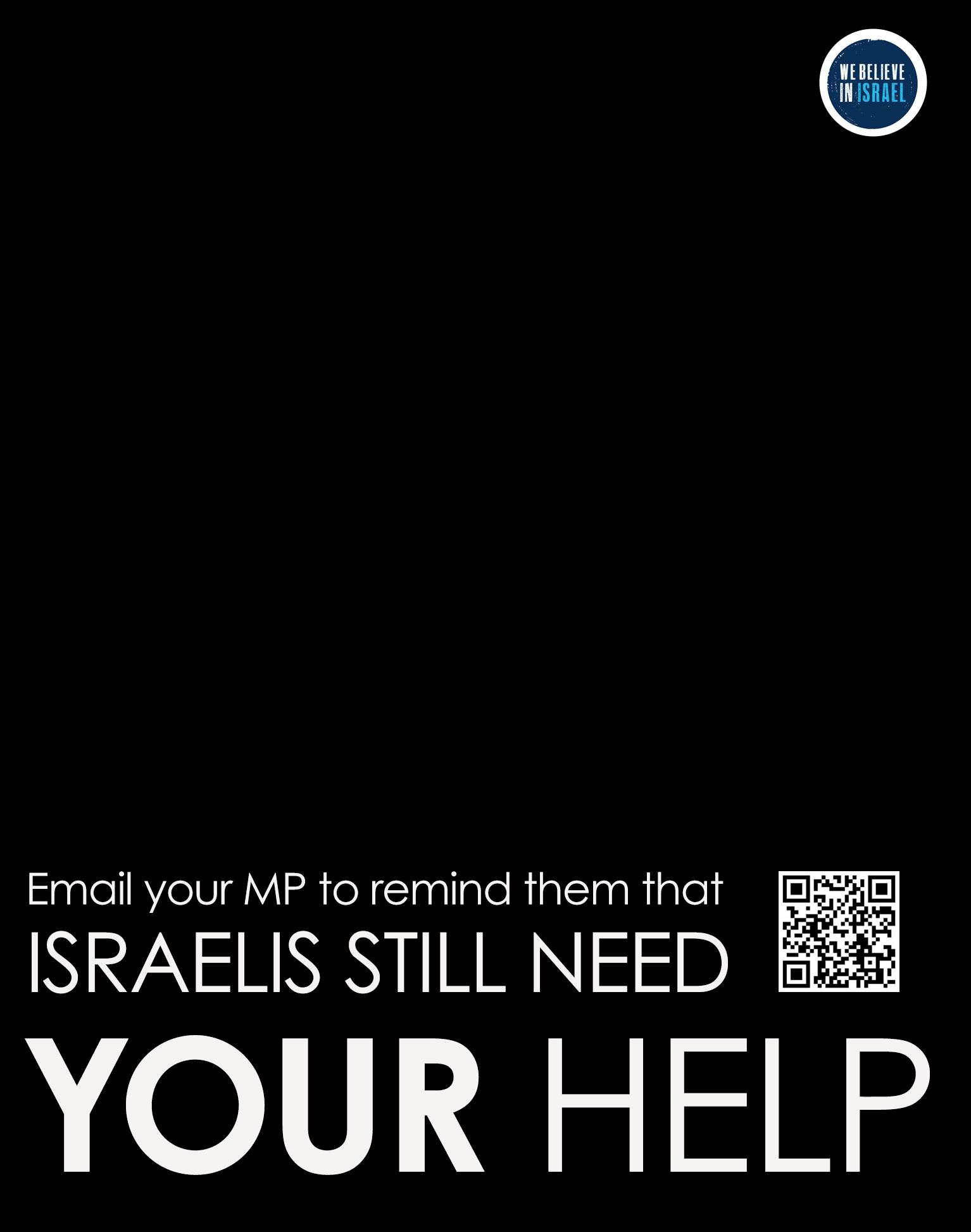




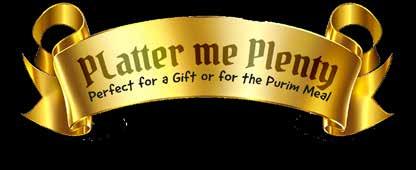
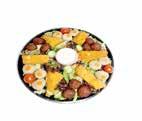








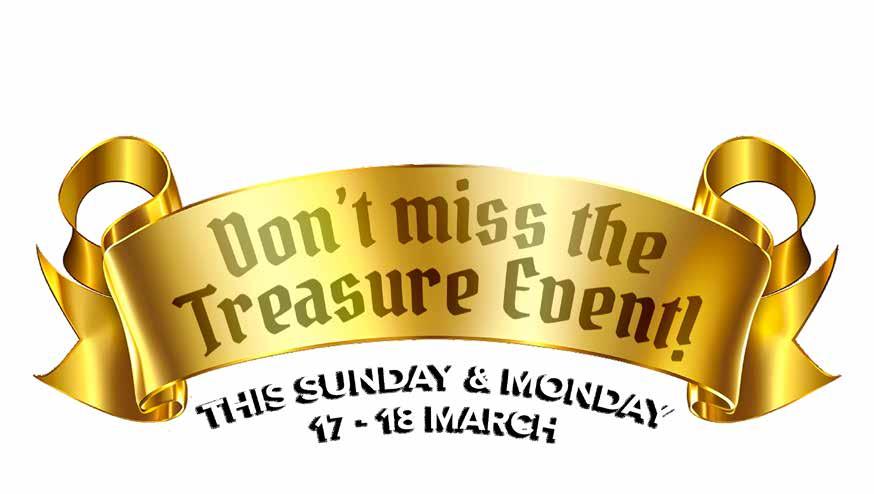
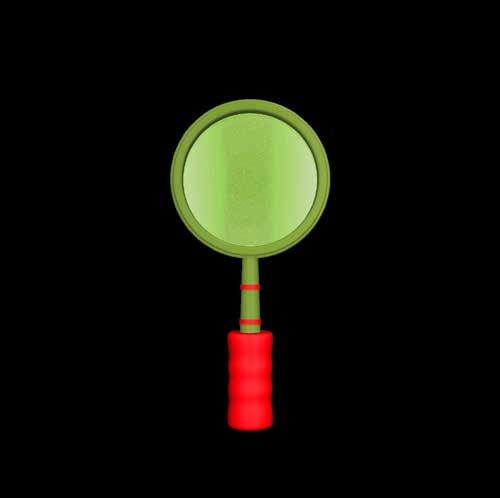
The London School of Jewish Studies held an intense leadership training seminar at the Brighton and Hove Jewish Community Centre.
LSJS’s Jewish Studies trainee teachers are part of the Teach to Lead mentoring programme across primary and secondary schools.
“They are all passionately invested in developing themselves with a desire to learn more about their roles and responsibilities”, said Rabbi Danny Baigel, LSJS’ Secondary Programmes and Teach to Lead Programme Manager.
Whilst teachers are at the start of careers they are leaders in classrooms, modelling values for students.
“Taking time outside of the classroom with colleagues has helped me understand the challenges and opportunities of being a teacher,” said Rabbi Yoni Barry, Hasmonean Boys High School. “It was thought provoking to hear Rabbi Sacks’ ideology in the context of school leadership. The training helped me reflect on my own strengths and ideas.”
Educational Leadership’, Stuart Diamond, Mitzvah Day, who spoke about his personal journey, Liz Brown, Shoresh Primary School, who shared her passion for the Montessori philosophy and importance of community engagement.
Larry Shulman wrapped up the seminar with a session on the concept of conscious leadership.
Teachers were shown strategies to help them navigate challenging choices.
“We are exceptionally proud of our Teachers Training provision and high employment record, giving teachers the best
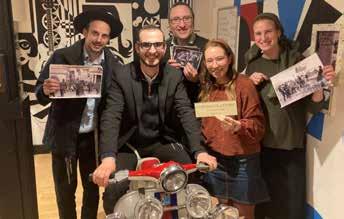
The trip included sessions with Rabbi Matt Marks, BNJC and LSJS Sacks Fellow, who talked about ‘Rabbi Sacks and
possible start in their career”, said Joanne Greenaway, LSJS Chief Executive.
The Pincus Foundation supported the initiative.
Metro Bank has transitioned to Jewish ownership. Regrettably, despite extensive negotiations by the UOHC of London, they have been unable to arrange a Hetter Iska with the bank.
Consequently, all interest-related
transactions, such as existing loans, mortgages, savings accounts, credit cards, and overdrafts, likely fall under the prohibition of Ribbis. Individuals with existing mortgages should promptly consult their local Rabbi for urgent advice.




Kisharon Langdon has raised £2,227,758 in its recent fundraising campaign.
This fundraising campaign marks the first match fundraiser with Charity Extra since the merger of Kisharon and Langdon and addresses a critical funding shortfall in adult social care support.
Persistent underfunding, exacerbated by global events, has placed immense pressure on organisations like Kisharon Langdon to secure essential services for those they support.
The campaign, named ‘On Top of the World,’ underscores the cahroty’s dedication to empowering individuals to lead fulfilling lives rooted in Jewish values.
grateful to everyone who contributed to our fundraising efforts. This is a significant boost for everyone involved as we tackle the remaining challenges of securing the outstanding balance of our £4 million funding gap, along with addressing the indirect consequences of ongoing world events on the charity. However, if ever there was proof positive that united we stand and we are
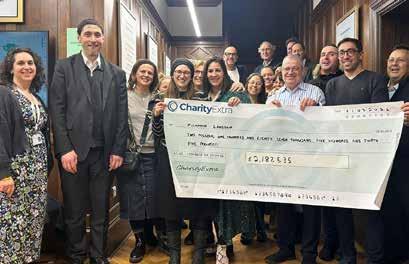
Despite the challenges, the extent of support from the community has been overwhelming.
Richard Franklin, Chief Executive of Kisharon Langdon, said: “We are incredibly
indeed better as one community, this outstandingly successful fundraiser is it.”
Donations: https://kisharonlangdon.org. uk/donate
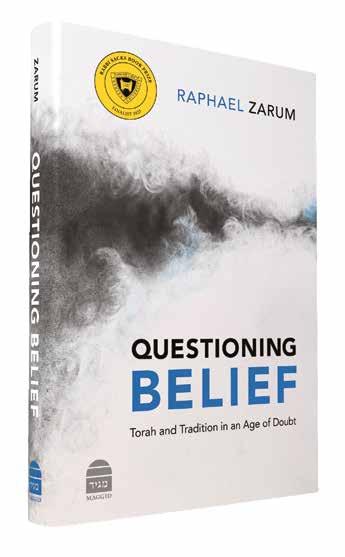
United Synagogue Rebbetzens recently spent the day in Brighton for the first RRUS (Rebbetzens’ Representatives of the United Synagogue) away day. The event was organised by Judy Markovic, Rebbetzens’ Coordinator at the Centre for Rabbinic Excellence (CRE).
After arriving at the BNJC (Brighton & Hove’s Jewish community hub), attendees met Helena Sharpstone, who led the morning training sessions on motivation. The sessions explored the mystery of motivation, the science around motivation, what drives people and more.
During lunch, the Rebbetzens heard from Michelle Bauernfreund from the Office of the Chief Rabbi. This was followed by a visit to i360, Brighton’s 162 metre moving observation tower on the seafront, where they discussed ideas on how to take yourself out of a situation to gain perspective.
The afternoon consisted of round table
sessions, reflecting on some of the highlights and challenges of being a Rebbetzen, praying and singing for Israel in the onsite shul at the BNJC, and hearing from Chief Executive of the United Synagogue Jo Grose, who spoke about the progress that has been achieved in recognising the challenges of the role of the Rebbetzens.
Watford & District United Synagogue’s Rebbetzen Shira Chalk said: “This jampacked day made us feel connected, inspired, and recharged. Many thanks to RRUS, CRE, and the Office of the Chief Rabbi for making it possible.”
Judy Markovic said: “This was a wonderful and inspirational trip, and a real privilege to spend time with such dedicated and motivated Rebbetzens. It is really humbling and an honour to be a part of this wonderful group, which enables these fantastic Rebbetzens to get together, laugh and share, and create strong bonds.”

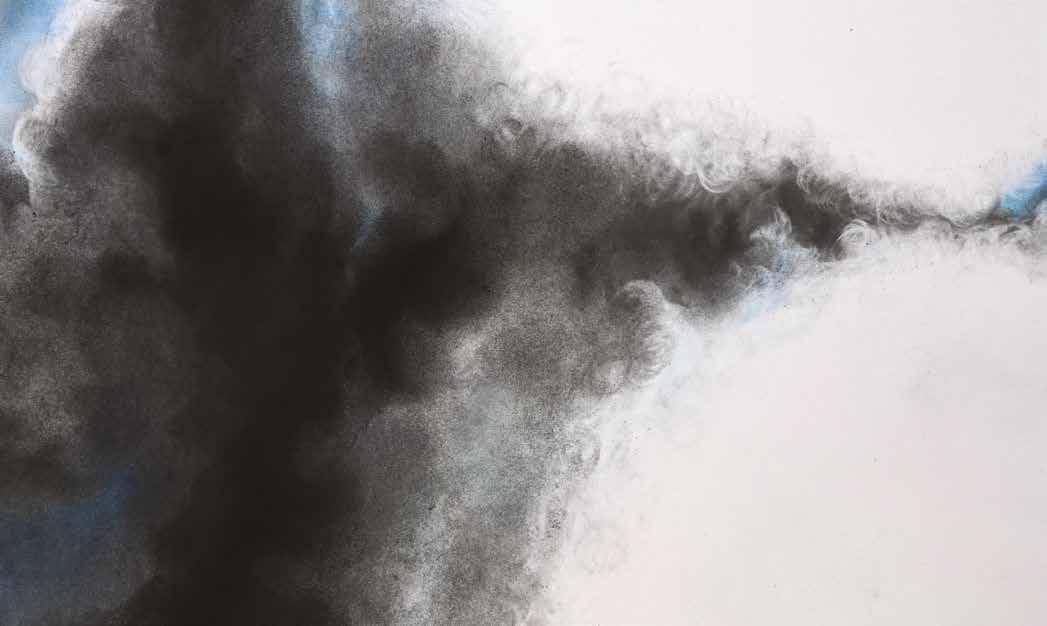


Aged 18 I enrolled in Yeshivat Hakotel situated at the heart of the Old City of Jerusalem. After midnight on Thursday nights I would often find myself on a rooftop balcony overlooking the Kotel. Looking back on that period I think perhaps that was the one time in the week, gazing out at the most treasured sight in the Jewish world, during which I allowed myself to dream; Jerusalem of Gold is after all the City of our Dreams! I would think about the challenges facing Am Yisrael, about the Torah and the Jewish philosophy I had learned during the week and contemplate
return and rebuild. It was an exciting time and one personally full of hope. One issue that was resolved clearly in my mind as I gazed out at the view, was the centrality of that which the Kotel represented, and the fact that the newly installed 6 stars of David Agam designed memorial to the 6 million, messaged to me in a very palpable mannerthe correct perspective of the central and focus of my own Jewish identity, and that which should be peripheral.
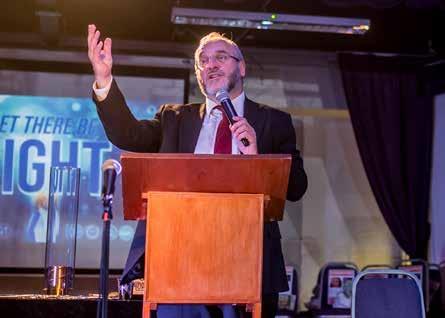
about what needs to be done in order to advance the state of Am Yisrael, rife with assimilation, ripped by internal dissent, replete with habitual observance and yet dynamically in the throes of miraculous
The fact that antisemitism is as pervasive as the Jewish People itself, is no reason for us to allow it to define us. The obsession with antisemitism is both a pedagogical and objective mistake and quite frankly, during a double Adarunnecessarily depressing. Why would any young person want to opt into Judaism if its central focus and identity is that only of an abused, hated and persecuted people? Is this all we have to offer? At Aish we are passionately committed to educating about the underpinnings of antisemitism. However, we are equally dedicated to shifting
the basis of Jewish identity for young Jews from a largely negative association to one connected with the positivity of connecting with a People and a heritage that has survived through thick and thin, positively contributing to the world as we journey.
Currently, day after day, week after week, the single Jewish issue that takes up the lion’s share of column inches (or their digital equivalent) all over some parts of British Jewry is that of the ugliness of antisemitism. This is understandable because since the massacres of October 7th, Jews around the world have experienced hatred and discrimination, whether on university campuses, places of work, walking to shul or just going about their daily business.
We recognise that antisemitism has been part of the Jewish story since the birth of our nation. We appreciate that from very nascent moments of our Peoplehood Yaakov our Patriarch was hated and hounded by his brother Esav. For many of us, the challenging realisation of this idea is ensconced in our national psyche with the words “eisav sonei et Yaakov” The first person to refer to us as a nation is none other than Pharaoh himself, when he irrationally refers to the peaceful People of Israel as representing a fifth column
threatening to become stronger and more numerous than the Egyptians. Pharaoh then presents his final solution- androcide, the systematic killing of all Jewish boys. The birth of the Jewish nation and antisemitism are indeed simultaneous, yet we must not let it define who we are!

Antisemitism is ubiquitous, yet it takes on different forms in every generation. We have been hated when we were rich and also when we were poor, when we were weak and when we were strong. We have been condemned for being capitalists and also for being communists. None of these are reasons to explain antisemitism, rather
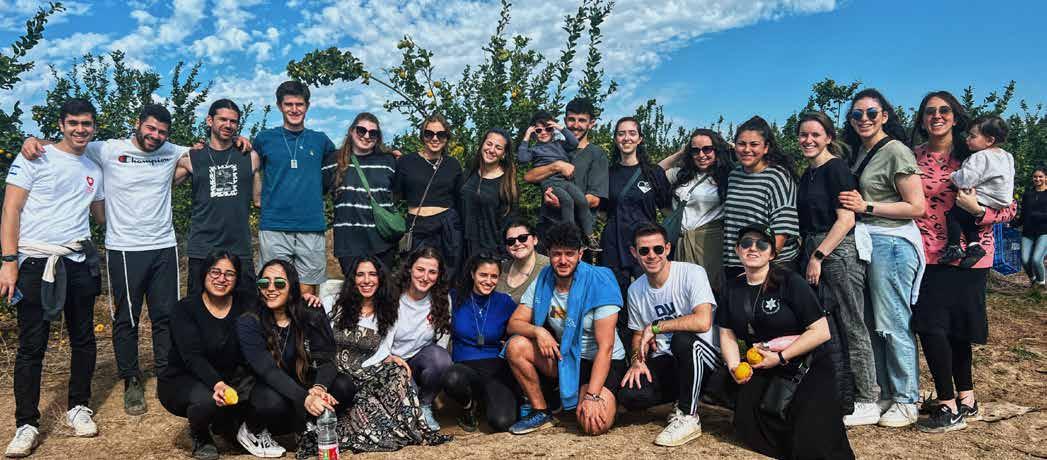
they are excuses to mask an underlying seemingly irrational hatred. To quote Lloyd George, ‘Whatever you hate, the Jew is that thing.’ No other form of racial hatred comes close to antisemitism in its universality, longevity, intensity and irrationality.
We were taken out of Egypt for a reason, to become the Mamlechet Kohanim veGoy
are out to stop us in every generation.
We cannot be ostrich like, burying our heads in the sand oblivious to the physical threats that threaten the Jewish People and of course we have to take all necessary measures to ensure that we, our families and institutions are safe. Yet, at the same
are least likely to point to studying religious texts, prayer, keeping kosher or socialising in predominantly Jewish groups.
The very same report also gives us up to date intermarriage statistics one-third (34%) of British Jews who got married between 2010 and 2022 married non-Jews.

kadosh- a nation charged with leading the whole world in connecting with the Almighty; to be partners in bringing the world to the stage when all of mankind will come to an awareness and live with the reality that the world has a Creator and Sustainer. It is therefore inevitable that there will be forces of evil that seek to stop us in our tracks at every turn. The Talmud in Shabbat 89. Asks “Mai Har Sinai?” Why Sinai? And answers “har sheyordo sina”, namely that Mount Sinai is related to the word sina since, by accepting the Torah, we accepted the reality that there would be those who
time, the fact that that this single issue occupies such a huge place in our press means that there is the inevitable and unintended consequence of antisemitism often being the major defining feature in determining Jewish identity among young ‘mainstream’ UK Jewry.
This is borne out by the recent JPR report that says that young British Jews are most likely to say that remembering the Holocaust and combating antisemitism, are amongst the most important aspects of how they see themselves Jewishly; they
This is up from 24% in the 2000s, and 17% in the 1990s. This is a tragedy of epic proportions and I would suggest that the two are connected. Why would anyone want to be part of a nation whose raison d’être is predominantly to stop people hating it? Surely it would be far simpler just to opt out?
At this point in time we urgently need a reframe in line with the type of Jewish experience and learning that at Aish we share with young mainstream Jews in schools, universities and communities nationwide. Namely, instead of giving centre stage to antisemitism, the mainstream Jewish messaging in particular, should focus on the richness, beauty and joy of a fulfilled vibrant Jewish life. We simply cannot allow antisemites and antisemitism to define our identity. In saying this I am reminded of the numerous trips to Poland facilitated by JRoots and accompanied by Holocaust Survivors. Their proud message of Am Yisrael Chai resonates in the hearts and minds of the thousands of young Jews who take this momentous journey with us each year. Their raising of a glass with the blessing of “Lechayim- to Life” leaves an indelible and proudly Jewish message of positivity, purpose and pride etched in the Jewish identity of those young Jews in who’s hands our future lies.
a doubt the most antisemitic threat to ever face the Jewish People. However, in response Mordechai didn’t stop teaching his students about Judaism and their role in forging the Jewish Future. Cheder kids came home from school having learnt confident messages of hope and trust from their teachers. Even though they were faced with the most tremendous adversity, they never gave up hope and did not allow a sense of despair or helplessness dampen their spirits. Simply put, they were unwilling to allow the threat they were under to define them.
This indomitable spirit has been echoed throughout the ages, with one powerful yet poignant example being Mrs Gutta Sternbuch herself a student teacher who together with her colleagues succeeded in building an illegal Jewish school in a bombed out building in the Warsaw Ghetto. In her book, Gutta, she writes how although the girls were always hungry and cold the teachers were able to nourish them with the warmth and positivity of authentic Judaism. The precious few hours that they spent together each day were a tremendous source of strength and inspiration for teacher and student alike as they did not allow our enemies to define their identity. Clearly, Gutta and her colleagues had internalised the positive messages that their teacher and mentor had imparted to them.
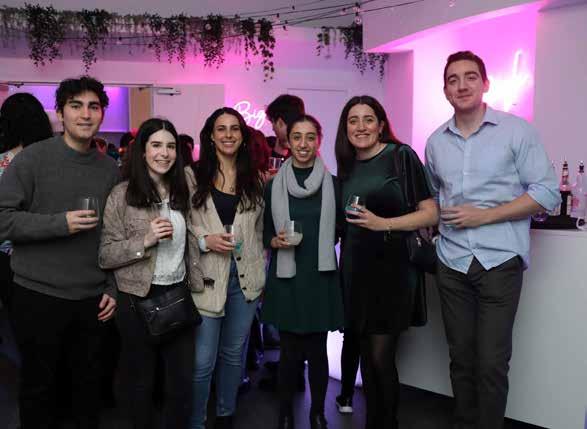
Perhaps this idea is also reflected in the Purim story. Haman’s decree was without
The Jewish response to threats and tragedy has always been one of asserting positivity and affirming life. In fact, I vividly recall that after the Aish centre in London was the victim of an antisemitic arson attack and Sifrei Torah desecrated in 2004, being reminded by Rabbi Sacks as the verse says during the slavery in Egypt-- ka’asher ya’anu oto kein yifrev’chein yifrotz! The more they seek to oppress us, the more we will do in our power to flourish and live a vibrant Jewish life. This of course is also a central message of Purim; the way that we commemorate the Purim story is not by focussing on Haman’s decrees, but rather by celebrating life through mishloach monot, le evyonim and the seudah festive and joyous meal.
Next month we will raise our glasses and sing vehi she’-amda, recognising the fact that antisemitism is not just inevitable, but rather that it is as unique as we are. In Jewish homes around the world we sing these words with a sense of confidence and pride despite all that we have been through, we will define ourselves with positivity and confidence in the Jewish Future.
Aish Charity Extra Fundraising Campaign is Sunday & Monday March 17 & 18th
https://www.charityextra.com/aishuk
Rabbi Naftali Schiff is Chief Executive of Aish and Founder and CEO of Jewish Futures.



NOW 2 for £4




GROSS
NOW 3 for £4





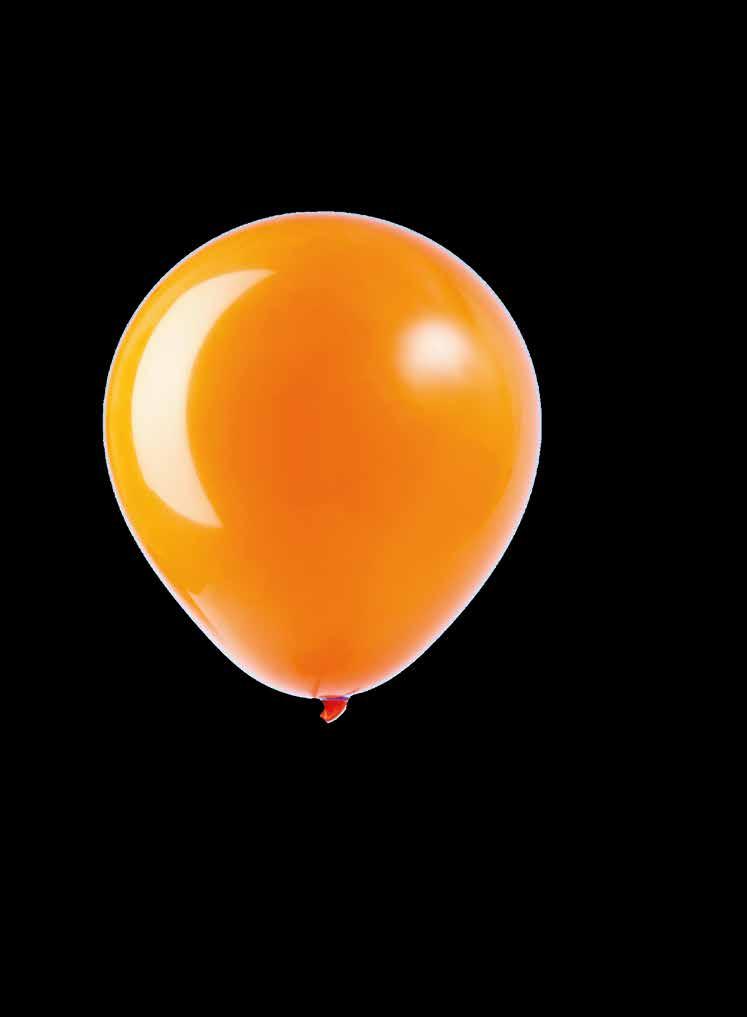



NOW 3 for £10

NOW 2 for £1.5

NOW 79p


TWIZZLERS LARGE
NOW £1.99

NOW 3 for £1



SALLY

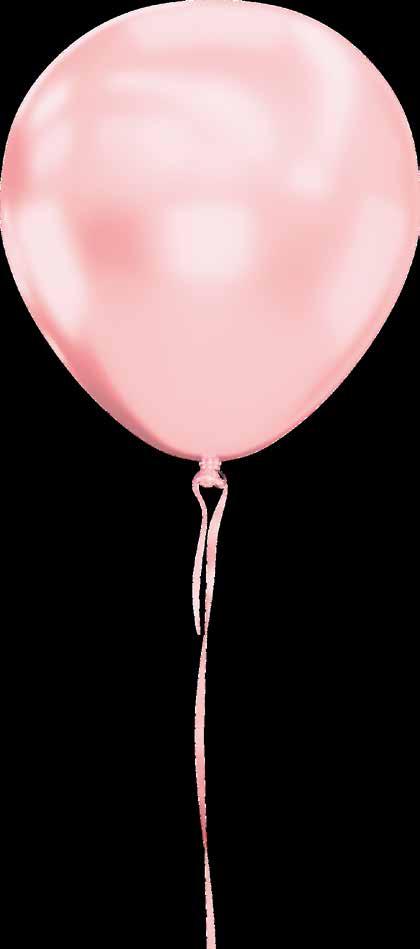


NOW 2 For £5

NOW 2 for £4
NOW £3.99
NOW £3.99

NOW £7.99
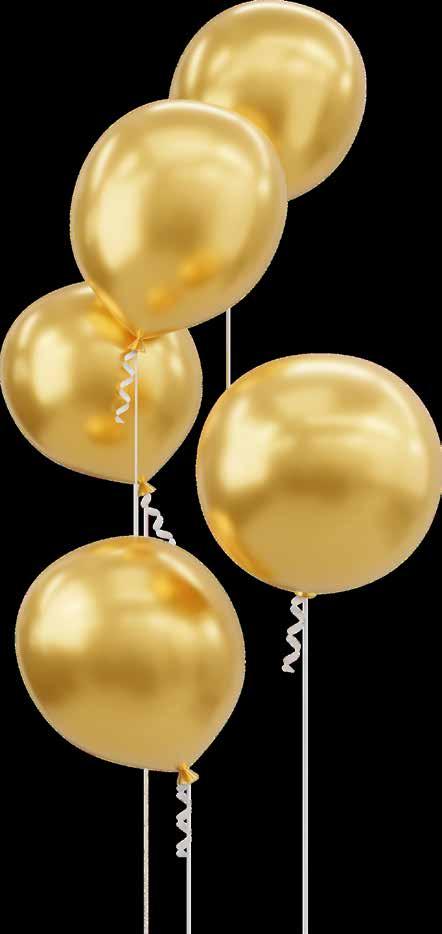


NOW 4 for £1

SOUR
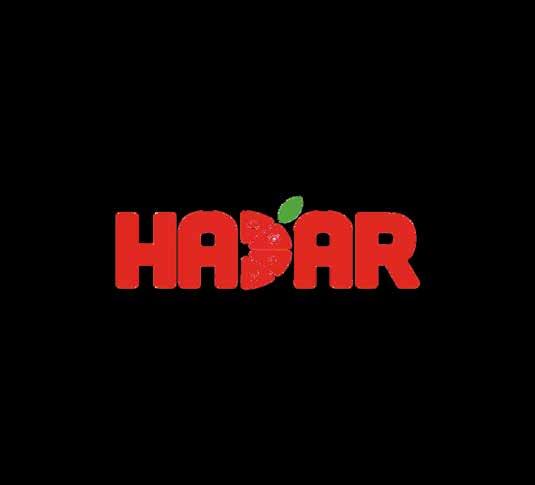
BENDICKS
BENDICKS

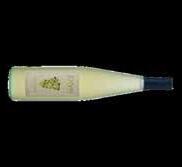



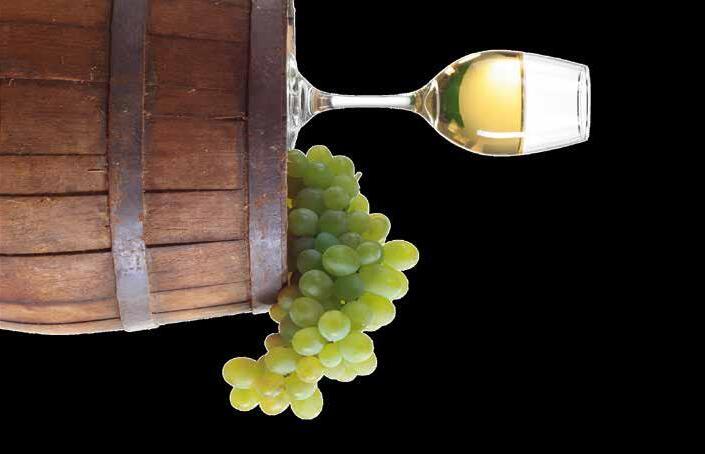

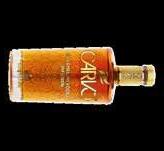





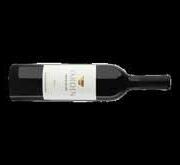





2
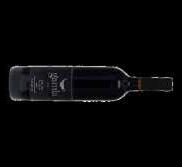


2 FOR





2 FOR



2 FOR
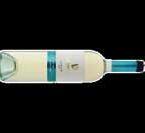


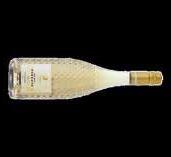







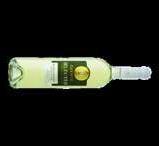
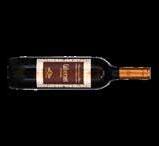

2 FOR
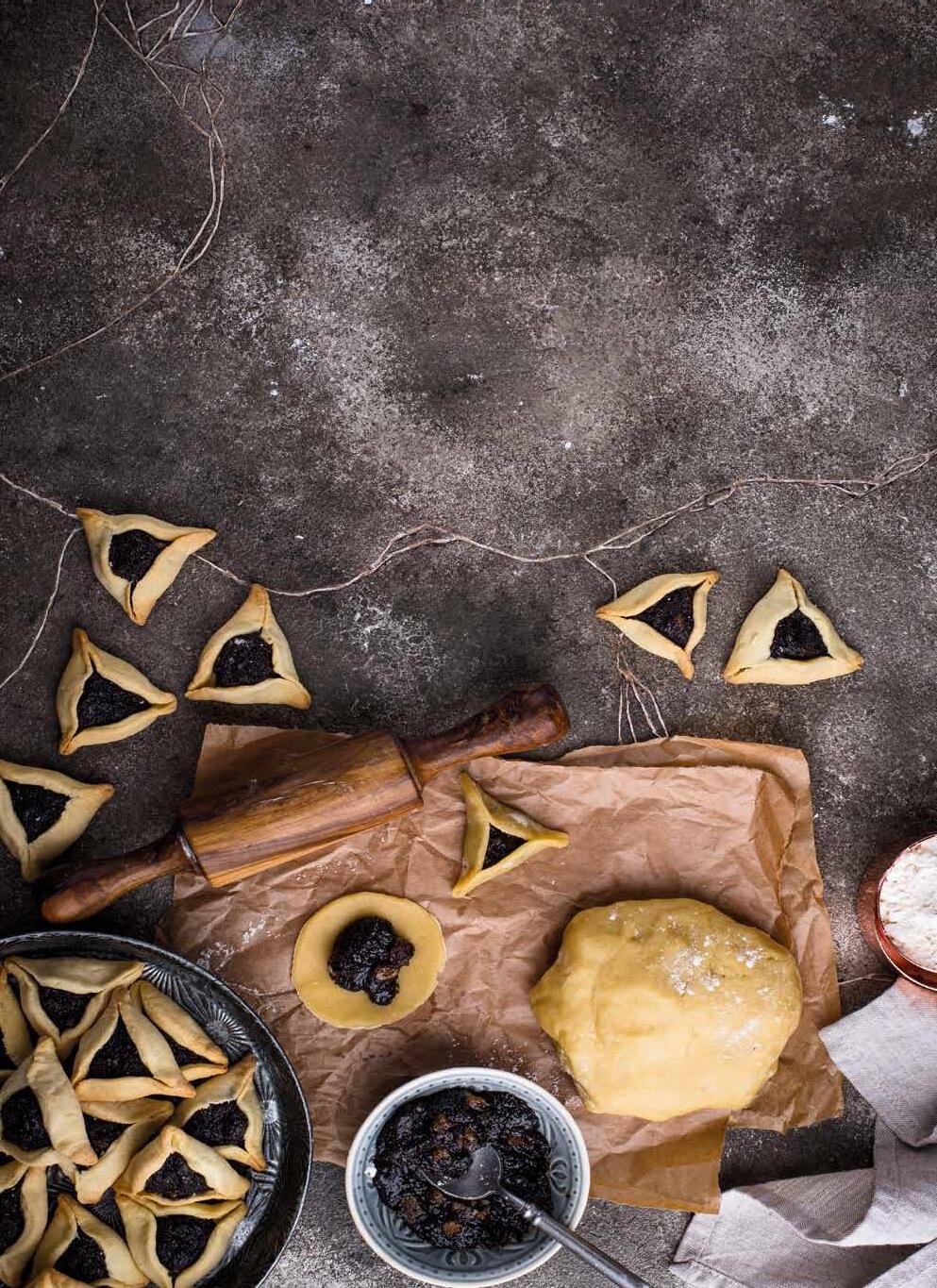

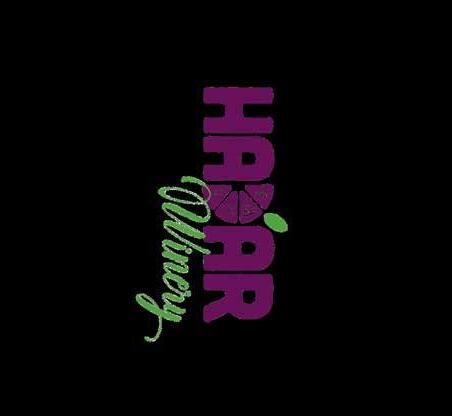

In a bid to engage with local communities and understand first hand the challenges and aspirations of young minds, Deputy Prime Minister Oliver Dowden, along with prospective Tory candidate and faith advisor Ameet Jogia MBE, paid a meaningful visit to Beit Shvidler Primary School in Edgware. Their visit was marked by an assembly attended by eager students, followed by a productive session with the student council, culminating in a dynamic Q&A.
The atmosphere at Beit Shvidler Primary School was charged with anticipation as students eagerly awaited the arrival of these esteemed guests. For many, it was an opportunity not only to interact with prominent figures but also to voice their thoughts and concerns on issues close to their hearts.
During the assembly, Deputy Prime Minister Dowden and Ameet Jogia MBE shared insights into the importance of education, community engagement, and the role of young leaders in shaping the future. Their words resonated deeply with the students, inspiring them to strive for excellence and actively participate in the democratic process.
Following the assembly, a special session was held with the student council, providing a platform for direct dialogue between the students and the distinguished visitors. This interactive exchange allowed the young leaders to express their views on various topics, ranging from education policies to environmental sustainability, showcasing their passion for creating positive change in their community.
Mrs. Glick, the headteacher of Beit Shvidler Primary School, expressed her gratitude for the visit, stating, “It’s truly heartwarming to see our students engage with such influential figures in our society. This experience will
undoubtedly leave a lasting impression on their young minds, empowering them to become active participants in shaping a brighter future.”
The Q&A session was a highlight of the visit, with students posing thought-provoking questions to Deputy Prime Minister Dowden and Ameet Jogia MBE. From inquiries about government initiatives to personal reflections on leadership, the exchange was both insightful and enriching, leaving an indelible mark on all those present.
As the visit came to a close, Deputy Prime Minister Dowden and Ameet Jogia MBE expressed their admiration for the students’ enthusiasm and commitment to making a difference. They reiterated their support for initiatives aimed at empowering youth and pledged to continue working towards a brighter future for all.
In conclusion, the visit of Deputy Prime Minister Oliver Dowden and Ameet Jogia MBE to Beit Shvidler Primary School served as a testament to the power of community engagement and the importance of nurturing young leaders. Their interactions with the students not only fostered a sense of empowerment but also reaffirmed the value of dialogue and collaboration in driving positive change. As these young minds continue to grow and flourish, they carry with them the inspiration and encouragement to make a meaningful impact in their communities and beyond.

Hand in Hand (formerly known as Shabbat Walk) is powered by its young volunteers, who give families and isolated individuals invaluable support every day of the week.
Hand in Hand held separate pre-Purim events for its male and female volunteers in London, to show appreciation for their hard work and give them an opportunity to engage in a meaningful activity together. The boys’ event attracted 70 volunteers for hot kugel and cholent and singing and words

of inspiration led by Rabbi Yaakov Klein. Over 100 female volunteers enjoyed music and froyo from Portoberry at the girls’ event.
Hand in Hand CEO Eliezer Gilbert said: “Our volunteers are and always have been the lifeblood of our organisation, and we have tremendous gratitude for all that they do. We hope that by providing meaningful opportunities for them to come together, they will feel encouraged to grow as chesed-orientated individuals, making our community stronger.”




Experience luxury & leisure at our firstclass beachfront Resort Hotel

Indulge in lavish breakfasts, dinners, and a delightful Shabbat Kiddush
Enjoy complimentary dinner wine each night
Delight in afternoon refreshments and abundant snacks
Convenient early kids' dinners
Daily Tefillot and inspiring Shabbat atmosphere
Explore day trips, local attractions, and nightly hotel entertainment
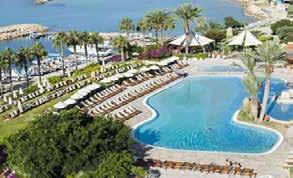
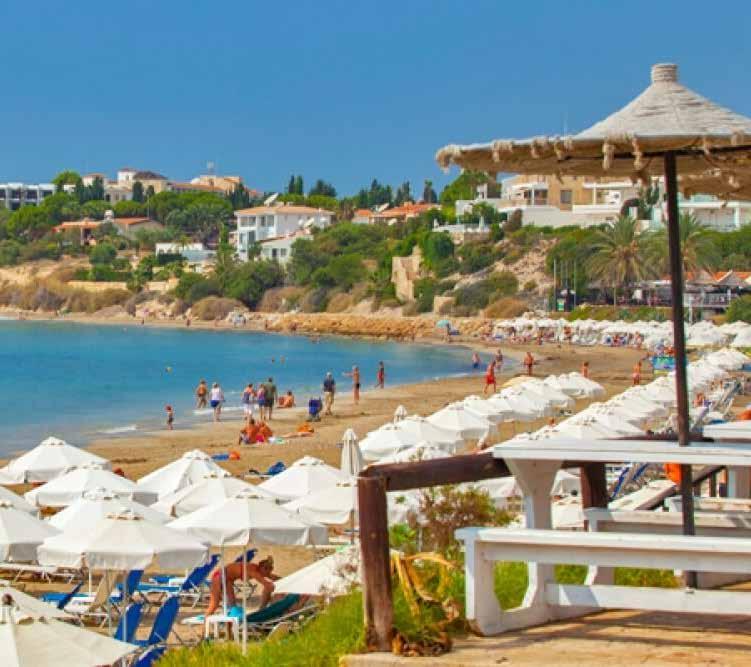
15 - 25 Aug (10 nights)
25 - 29 Aug (4 nights)
25 Aug - 01 Sept (7 nights)
Abundance of hotel activities indoor & outdoor pools, arts & crafts, gym, tennis, biking, waterslides, watersports, golf wellness spa & more….
Exceptional value for a relaxing, familyfriendly Kosher getaway
Join our Kosher Travelers Anglo group
Airport transfers & Car rental available
Family Plan: 5% discount for 2 rooms or more on a first come basis.
Immerse in a laid-back family vacation hosted by David & Chana Walles


*Price starts at 1925 Euro per person 7 nights [double occupancy]
Catering Manager: Raphy Solomon of Premier Kosher Holidays
Kashrut is Glatt Mehadrin, under supervision of www.ikmehadrin.com
“We stayed at Coral Beach, Cyprus and it has to be the best hotel by miles. Everything feels and looks new whilst retaining a certain Cypriot charm we loved. The Kosher meals were excellent and my family really enjoyed the hotel facilities and beachfront vacation. We will return for sure”. Karen Last, UK/Israel



Eli-G Estates are very pleased to be offering this fabulous family home, this home was fully rebuilt and extended approx 5 years ago to a high standard & offers plenty living & entertaining accomadation
Six bedrooms, 3 bathrooms, underfloor heating (in separate zones), air con, CCTV, Pesach Kitchen, Study, Triple through dining room lounge, large hallway, off street parking






Dear Rabbi
I recently attended a talk on dealing with stress. It wasn’t a Jewish event and I found the speaker engaging until she started into this whole yoga rant. A lot of her references were from Far Eastern culture and philosophy. I often overthink things and get very stressed out. Is there a Jewish approach to dealing with stress and a perspective about overthinking?
Leah
Dear Leah
I have had variations of this question submitted over the years but never got around the responding to them properly and putting fingers to keyboard. So, now is as good a time as any.
Judaism puts much emphasis on our frame of mind and strongly encourages positive thinking. Often this is counterbalanced by overthinking. In Judaism there is a principle called “hesech hada’as,” literally translated to mean, “Putting it out of your mind,” which is another of saying not to overthink.
Indeed, I would argue that overthinking is one of the biggest causes of stress and unhappiness. Here’s some food for
thought: The problem is rarely the problem. 99% of the harm is caused in your head by you and your thoughts. 1% of the harm is caused by the reality. Most of the time, the problem isn’t the problem. The way you think about the problem is.
In life when we overthink we often hold back and deny ourselves our potential. Don’t think you deserve that opportunity? Apply for it anyways. Don’t think you’ll get a reply to your email? Send it anyway. Never overthink yourself into self-rejection.
Whatever the outcome, remember, that peace of mind is found in acceptance. Accept that you are imperfect and can make mistakes. Accept that about others as well. Accept the uncertainty of situations and your inability to control everything. You don’t have to understand, tolerate or even forget something. But if you want peace, you will have to accept it.
The truth is, most problems aren’t solved with more thinking. Sometimes you need to step back and in the quiet space you’ll have a time-band with a clear mind. And sometimes, if you can’t solve a problem, stop trying to.
Perhaps above all else, when you self-criticise for past mistakes or you are always seeing disaster looming around the corner, here’s an important question

to ask yourself: Is there anything I can do right now to change the past or indeed to positively influence the future? If the answer is ‘yes’, then take action. What are you waiting for? If the answer is ‘no’, then stop thinking about it. Let it go. Those are your only options.
You’re can’t overthink your way to a better future. You certainly can’t overthink your way to a better past. All you have is now. And what you do with the here and now can make right of your past and make good of your future. So, make peace with yesterday, let go of tomorrow and grab hold of now.
We are currently in the Hebrew month of Adar –which is filled with joy and positive energy. Jewish mysticism stresses how that same positive energy can always be engendered by your very thought process. There is a well-known Yiddish adage by the Tzemach Tzedek: “Tracht gut vet zein gut.” “If you think good then it will be good.”
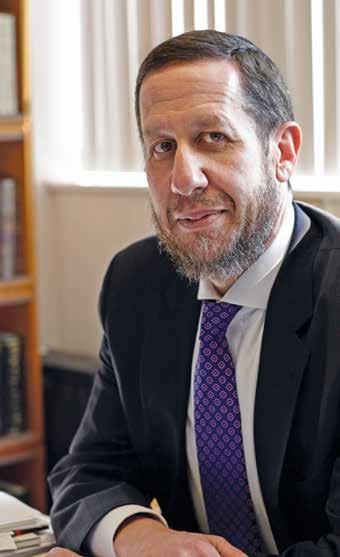
By definition, your thoughts create scenarios in your mind that reflects your insecurities, fears and anxieties. So factcheck your thoughts because in highly emotive situations your mind will tell you stories that are simply not true.
Here’s the bottom line: You can go to the gym daily; you can eat healthy; you can do yoga, drink only water and take vitamins. But if you don’t directly confront the negativity in your thoughts, you will never truly be healthy.
A woman walked up to a wrinkled old man rocking frailly in a chair on his porch, but with a big smile on his
face, looking so happy. “I couldn’t help noticing how happy you look,” she said. “What’s your secret for a long happy life?” He raised his hand weakly to gesture and said, “I smoke three packs of cigarettes a day. I also drink a case of whiskey a week, I eat fatty foods, and I never exercise.”
“That’s amazing,” she says. “How old are you?” “Twenty-six!”
Contrary to popular misconception, our health isn’t only measured by the number on a scale or the size of our waist. True health is measured by the quality of our thoughts and the peacefulness of our mind.




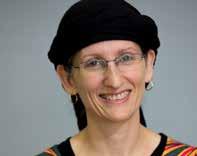
In Parshat Pekudei, the Mishkan finally comes together. The Jewish people invested greatly in this holy project, donating precious gems and materials, fashioning the beautiful vessels and curtains, carving beams and forming connectors, and putting it all together into the grand resting place for Hashem’s Presence in the camp. In the final pesukim of our parsha and of Sefer Shemot, we hear that the cloud symbolizing G-d’s Presence filled the Mishkan. However, there is a discordant pasuk inserted just before the end of the parsha (40:35): “And Moshe was not able to enter the Tent of Meeting, for the cloud had rested upon it, and the Glory of Hashem filled the Mishkan.” Why mention again that the cloud filled the Mishkan, and point out that Moshe could not go inside? It seems strange – the point of the Mishkan was for Moshe and the Kohanim to go inside, to speak to G-d and serve
Him; isn’t it disappointing that Moshe, who invested his soul in the project, cannot enter right at the climax of the dedication?
Upon reflection, however, the fact that Moshe cannot enter the Mishkan is actually the symbol of its success. Imagine an architect who designs a couple’s dream house, and the builder who takes the plans and brings them to fruition. The greatest success of those experts is when the couple takes the keys and begins to live there – and by necessity, then, those who designed and built it are locked out! Our greatest joy is when our children grow up and lead independent, successful lives separate from us, not when we have access to every detail of what is happening with them as we did when they were small.
This idea is also reflected in a famous story about the giving of the Torah at Har Sinai. The Talmud in Menachot 29b

The Torah lists the overall weight of gold, silver and copper used in building the Mishkan. The amount of half-shekel silver coins donated form the basis of a census of 603,550 males above the age of 20. The coverings for the Mishkan’s furnishings, used to guard them during the nation’s journeys, are made of turquoise, purple and scarlet wool.
The priestly garments are made, starting with the ephod, worn over Aharon’s tunic and robe. It has two shoulder straps
relates that when Moshe went up to receive the Torah, he asks Hashem why He is “tying crowns” atop some of the letters in the Torah, and hears that in the future, there will be a sage named Akiva ben Yosef who will interpret these crowns. Moshe asks to see this incredible scholar, and finds himself transported many centuries into the future, into Rabbi Akiva’s beit midrash. However, Moshe finds that he does not understand the discussion and feels despondent – how can he be the one receiving the Torah and be a stranger in the beit midrash of the future? When a student asks Rabbi Akiva the source of a certain halacha and Rabbi Akiva responds, “This is a law that was given to Moshe at Sinai,” Moshe is mollified. But why does this make Moshe feel better? The answer is the same as we discussed above: he knows he has succeeded when his work, his creation, surpasses him. When the Torah Moshe taught is taken further, to places he didn’t dream of. When the Mishkan he built is
off-limits because Hashem’s Presence has moved in.
Here in Israel during the war, we have been watching with pride as our children bravely defend the country, standing shoulder to shoulder with other young Israelis of all backgrounds and ideologies, willing to sacrifice together for the good of the nation. As our children and students use their free time to volunteer on farms, cook dinners for soldiers’ families, run activities for children who were torn from their homes. We are so proud of them and consider whether we can learn from them about caring, courage, and unity, even after the war. What Am Yisrael has built has surpassed us, Baruch Hashem.
Rabbanit Sally Mayer serves as Rosh Midrasha at Ohr Torah Stone’s Midreshet Lindenbaum in Jerusalem. She is a member of the Mizrachi Speakers Bureau (www.mizrachi.org/speakers).
“FOR OVER THE TABERNACLE A CLOUD OF G-D RESTED BY DAY, AND FIRE WOULD APPEAR IN IT BY NIGHT, IN THE VIEW OF ALL THE HOUSE OF ISRAEL THROUGHOUT THEIR JOURNEYS”.
(ketefot) and a belt (cheshev) attached. A precious onyx stone (shoham) is placed on each shoulder strap. The next item made is the breastplate (choshen), containing 12 different types of precious stones (avnei miluim).
The turquoise robe (me’il) is made. Golden bells (pa’amonim) are placed between multi-coloured woollen pomegranate shapes (rimonim) hanging from the bottom hem. A knitted tunic (ketonet) with a grid-like pattern, a linen turban (mitznefet), linen trousers (michnasayim) and an embroidered sash (avnet) are made for every Kohen to wear. The pure gold band (tzitz) is made, to be placed on Aharon’s forehead.
The work of the Mishkan is finished,
executed by the nation exactly as G-d had instructed Moshe.
4TH ALIYA (REVI’I) – 39:33-43
All of the structural parts of the Mishkan and its furnishings are brought to Moshe, as well as the priestly garments. Moshe inspects all the work and blesses the workers.
Point to Consider: What blessing did Moshe give to the workers? (see Rashi to 39:43)
G-d tells Moshe to set up the Mishkan on Rosh Chodesh Nisan, to anoint its
vessels with oil and to inaugurate Aharon and his sons.
6TH ALIYA (SHISHI) – 40:17-27
Moshe sets up the Mishkan as commanded by G-d and puts all of the furnishings in their correct place. He brings an incense offering on the golden altar (mizbeach ha’zahav).
7TH ALIYA (SHEVI’I) – 40:28-38
Moshe then brings an elevation offering (olah) and a flour offering (mincha). A heavenly cloud descends upon the Mishkan. When it lifts, the people are allowed to journey on.
Taken from the Book of Kings, the haftarah relates the completion of the Beit Hamikdash under the leadership of King Shlomo (Solomon), based on the preparations made by his father King David.
A thick cloud fills the “House of G-d”, indicating that it has become a dwelling place for the Divine presence.

Our Bar and Bat Mitzvah Project ensures that young people, on their special day, can share it with a child Holocaust victim who was denied a future.
Over the past 10 years we have twinned over 1000 children.
Complete the on-line Twinning Form and researchers at Yad Vashem will use the information to find a suitable twin.
Celebrants will receive a comprehensive Twinning Pack which contains:
• A Page of Testimony, with details of your chosen twin
• A Study Guide
• A Certificate
• Letter from a Holocaust survivor
• A Yad Vashem pin
• Memorial and Shabbat Candles
• An invitation to become a Guardian of the Memory
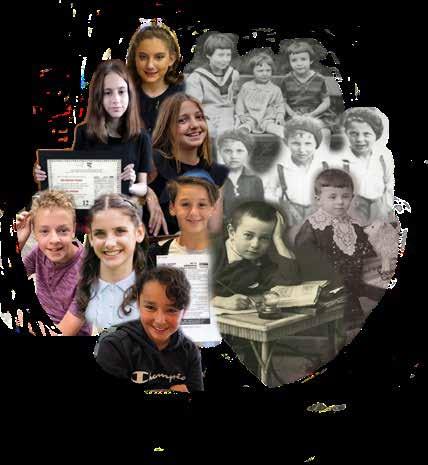
46 Albert Road
London
NW4 2SG
Charity No. 1099659
Phone: 020 8187 9881
Email: office@yadvashem.org.uk
www.yadvashem.org.uk
www.guardianofthememory.org


@yadvashemukfoundation


Metulah, Israel’s northernmost city, which abuts the border with Lebanon, was desolate last Thursday morning, due to barrages of deadly rocket fire. Some might find this news extremely discouraging, but it’s important to know what’s happening behind the scenes. Just last week, the city authorized the construction of a new neighborhood with dozens of housing units.
there are no words to express what we feel, our prayers pierce the heavens — prayers for the baby, for his mother, for the soldiers and the wounded and the hostages, prayers for everyone and everything.
And his name in Israel shall be called: Porat Avia.
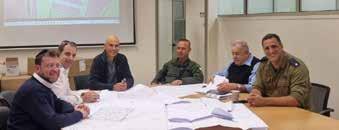
The photo here shows the representative of the Jewish community in Mexico (far left) which is investing in this project, next to architect Yitzchak Shapira, as well as the local counsel’s engineer and chairman of the planning commission. Final approval for the project will be given at the next meeting of the planning commission.
In the words of the prophet Yirmiyahu: “For so says the Lord of Hosts, the G-d of Israel: Houses and fields and vineyards shall be purchased again in this land.”
This past Shabbat morning there was a brit milah for the son of Yedidya Eliyahu who fell in Gaza four months ago. No words can describe the atmosphere in the event hall: a mix of joy and sorrow, a new life and one that was missing, heaven and earth, this world and the next.
The grandfather, Rabbi Yoram Eliyahu, served as sandak, the one who holds the baby during the brit. In the father’s absence, he recited the brachah: “Who sanctified us with His commandments and commanded us to enter him into the Covenant of Avraham our father.” Meitar, the mother, blessed “Sh’hechiyanu” and “Hagomel” over the brit and the safe delivery. The mohel asked those assembled to pray. “These are holy moments,” he remarked. When
one who interprets the Torah contrary to its true intent—although he may possess Torah knowledge and good deeds, he has no share in the World to Come.”
I previously wrote that in reply to the question, “How are you?”
Yedidya Eliyahu would reply “Living the dream.” As I was leaving, Ziva Eliyahu, his mother, told me with eyes full of tears, but with a smile: “We will continue to live the dream, only differently.”
The Israel Antiquities Authority last week reported a rare find: a coin dating from the Bar Kochva revolt and bearing the inscription “One year since Israel’s redemption” (see photo). Both sides of the coin feature the name “Elazar HaKohen,” which according to some researchers refers to Rabbi Elazar HaModa’i, believed to be Bar Kochva’s uncle.
What we find in the ground here in Israel reminds us how deep our roots are and how ancient our story is in this land.
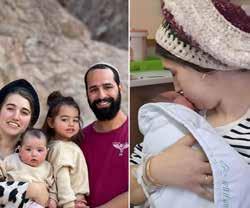

Notice that everything here relates to respect or honour: honouring the Beit HaMikdash service and the holidays, honouring friends and others, honouring the practice of brit milah, and honouring the Torah. The verbs used convey lack of respect: profanes, degrades, humiliates, abrogates . . . Such an attitude distances us from eternal life and the World to Come.
This coin may be 2,000 years old, but the cautionary message of the one whose name appears on the coin is still pertinent today.
HAVE YOU HEARD OF DAVID MAGERMAN?
* Translated by Janine Muller Sherr
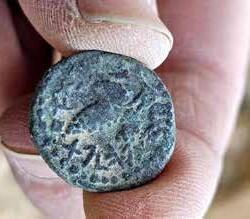
Let’s contemplate for a moment the words of Rabbi Elazar from the Mishnah: “One who profanes consecrated sacrificial animals; one who degrades the festivals; one who humiliates his friend in public; one who abrogates the covenant of our father Abraham; or
David, a highly successful businessman and philanthropist, was one of the first donors to announce that he will cease supporting the University of Pennsylvania. Following the shocking hearing before Congress in which UPenn president Liz Magill couldn’t bring herself to condemn calls for Jewish genocide on her campus, David decided to withdraw his support from the university (which is also his alma mater). Furthermore, he called on all other self-respecting Jewish donors to follow his lead. It takes great courage to sound a voice of such moral clarity in our confused world of today. Notably, Liz Magill has since resigned her post.
Jew — on Yom Kippur and Pesach,” he explained, “but Judaism didn’t mean anything to me. I completed my doctor-

ate and achieved great financial success. One day, I received an invitation from my relative in Israel to come to his son’s bar mitzvah. That was how, several years ago, I found myself on Shabbat in the Har Nof neighborhood of Jerusalem. And I fell in love. In contrast to the isolated existence that so many people live today, there, I saw a community coming together to celebrate with a bar mitzvah boy, and it was pure joy. I met little children who knew much more Torah than I did. The experience moved me greatly. After I returned to the US, I arranged a study partner and started to learn Torah. My life was transformed. My children are now learning in a Jewish day school.
And then came his third brave move.
In front of 1,000 people at the Project Inspire Shabbaton, David made a dramatic announcement:
At the end of February, we both participated in a panel discussion at the annual Project Inspire Convention in Connecticut. There, David described a second brave step that he took.
Like so many of our brothers and sisters in the diaspora, he did not receive a Jewish education. “I was a “twice-a-year
“The time has come for us to make Aliyah. I’ve already purchased a home in Israel. I didn’t merit to have my children born there, but I do hope that my grandchildren will. This is the direction our history is headed and it is the right place to be. Not only because of antisemitism but because it is our home.”



What is the worst part of Pesach?
Bubba’s Cinnamon Balls
The Cleaning T
Too much family time
Pesach “Ketchup”
Bubby’s Cinnamon Balls
No Whisky!





 BY RABBI SHMUEL REICHMAN
BY RABBI SHMUEL REICHMAN
“I want the very best.” That’s what we tell ourselves, isn’t it? As human beings, we understand that there is a spectrum of quality for everything, and we want only the best. We desire the best relationships, teachers, friends, food, clothing, experiences — the best of everything. But what makes something the best? Sometimes, it’s the quantity; this brand supplies more of its product for the same price. But often, it’s the quality that makes the difference. When you pay an increased rate for a service, experience, or luxury, you do so with the assumption that you are receiving a higher quality product, one that is fundamentally improved from the basic, standard package. With this in mind, let us explore a unique idea connected to Eretz Yisrael.
The Torah is replete with mention of Eretz Yisrael’s greatness and uniqueness. While we often hear about Eretz Yisrael’s unique kedushah (holiness), we must ask: What is the nature of this holiness, uniqueness, and greatness? One can suggest that the land itself is of better quality and more inhabitable, or that Eretz Yisrael is the home of the Jewish People. But there is something more at hand; its value goes far beyond that. For instance:
• The Beis Hamikdash, the spiritual centre of the universe, was located at the centre of Eretz Yisrael.
• Hashem promised Avraham the land of Israel as a sign of their eternal covenant.
• There are a number of mitzvos that can only be performed in Eretz Yisrael.
Our question, then, is twofold. What is the underlying uniqueness of this special land, and why does Eretz Yisrael possess this unique quality?
At a surface level, the land of Israel is no more than that: a land for the Jewish People to inhabit. There is nothing unique or fundamentally different about Eretz Yisrael; it simply serves as the homeland of the Jewish People. This was the argument made in the twentieth century when some proposed that Uganda should be given to the Jewish People as a homeland. This stems from the pragmatic view that Israel was a safe haven for the Jewish People, and any other land could serve this function just as well. This line of thinking diminishes, if not eliminates, any inherent spiritual uniqueness that the land of Israel might possess. According to this view, the Beis Hamikdash’s location in Eretz Yisrael is of no intrinsic significance — and evidence of this would be the fact that the Jewish People had the Mishkan in the desert, and that sufficed. However, such a view
overlooks the true nature and depth of the Jewish homeland. Eretz Yisrael is not special simply because it is the homeland of the Jewish People; it is the homeland of the Jewish People because it is special. Let us explore this topic.
When Hashem created the world, He also created its accompanying dimensions of time and space. This occurred through a process that emanated from one point of inception: the Even Shesiyah (rock of formation). This rock of formation, from which the entire physical world expanded, is located at the heart and centre of Eretz Yisrael, under the Kodesh Hakodashim in the Beis Hamikdash. It is from this point that all of time and space comes into existence. As such, the rules of time and space as we know them begin to bend as one approaches this holy spot. And in this focal point itself, the rules of time and space cease to exist. Let us explore this in greater depth.
There are several identifiable layers of time and space in the world, organized in concentric circles. The outermost area is the majority of the world, governed by what we consider to be the laws of physics. However, once one enters Eretz Yisrael, these rules begin to bend. In Sefer Daniel (11:41), Israel is referred to as “Eretz HaTzvi — The land of the deer.” The Gemara explains this comparison between Eretz Yisrael and a deer. The skin of a deer, once removed from its body, appears far too small to have ever fit over the deer. A deer’s skin stretches on its body — a trait it shares with Eretz Yisrael. The land of Israel stretches to fit its people (Gittin 57b); as such, there will always be room for all the Jewish People to come home.
The second concentric circle is Yerushalayim, which lies at the centre of Eretz Yisrael. On each of the Shalosh Regalim (Pesach, Shavuos, Sukkos), the Jewish People gathered in Yerushalayim to celebrate. The Mishnah in Avos (5:5) states that nobody ever complained that they could not find lodging in Yerushalayim. The city of Yerushalayim — an area far smaller than the land of Israel — miraculously made room for its people.
The third concentric circle is the Azarah, the courtyard within the Beis Hamikdash. The Jewish People gathered in this area to daven on the Shalosh Regalim, standing crowded together in the small courtyard. The Mishnah in Avos (5:5) testifies to the miracle that occurred here: Although everyone stood crowded together, when they bowed, they had adequate space. This is due to the unique spiritual nature of this place: When standing in the courtyard of the Beis Hamikdash, in the centre of Yerushalayim,
in the land of Eretz Yisrael, the rules of time and space bend. However, this was only true once they bowed down; only once they negated their egos and recognized Hashem as the source of time and space were they able to exist beyond these physical boundaries.
The last layer of kedushah is the Kodesh Hakodashim, located directly above the Even Shesiyah. At this point, the laws of time and space break down completely. The Gemara (Megillah 10b; Yoma 21a) explains that the Aron (Holy Ark) in the Beis Hamikdash, occupied no space. The measurements from either side of the Aron to the wall were the same as the width of the Kodesh Hakodashim itself. (Tanach lists the measurements of the Kodesh Hakodashim as twenty square amos (Melachim I 6:20). But the Gemara states that there were ten square amos on either side of the Aron. These measurements do not end up giving the Aron any dimensions at all. To explain this paradox, the Gemara explains that there are no measurements in the Kodesh Hakodashim.)
This principle — that the Kodesh Hakodashim exists in a realm far beyond time and space — manifests in another unique way. It is forbidden for anyone to enter the Kodesh Hakodashim at any time, as the Torah states: “No man shall enter” (Vayikra 16:17). However, the Kohen Gadol enters the Beis Hamikdash on Yom Kippur. How is this possible? Man cannot enter the Kodesh Hakodashim — not as a restriction, but by definition. The Kodesh Hakodashim is completely beyond space and time; as such, it is impossible for a physical, mortal, limited human being to exist in such a place. However, the Kohen Gadol is able to enter on Yom Kippur, on a day when he is no longer human. On Yom Kippur, we transcend our physical nature and embrace our angelic root. We wear white, dressing as angels. We refrain from eating, as we loosen the hold that our physical body has on our angelic soul. We say “Baruch shem kevod malchuso l’olam va’ed — Blessed is the glorified name of His kingship forever and ever” aloud, a line that only angels can say aloud. On this special day, the Kohen Gadol represents all of Klal Yisrael — not as a man but as an angelic being. In this state, he enters the Kodesh Hakodashim, now able to exist in the place that transcends the limitations of time and space.
This principle that we have developed — the intrinsic holiness of Eretz Yisrael — explains why there are many mitzvos that apply uniquely within its borders. This special treatment is not practical; it is indicative of the objective status of the land. Eretz Yisrael is fundamentally different, and thus it warrants fundamentally different obligations. It is the physical land most potently rooted in a spiritual
reality. The very earth of Eretz Yisrael is saturated with higher levels of kedushah. The produce is of a fundamentally different nature, filled with the nutrients of holiness and transcendence. Every four amos one walks in Eretz Yisrael is another mitzvah. (Kesubos 111a; Rambam, Mishneh Torah, Melachim 5:11. The actual wording of the Gemara is: “Anyone who walks four amos in Eretz Yisrael is ensured a share in the World to Come,” but Klal Yisrael has become accustomed to referring to this as a “mitzvah.” See Mishnah Berurah 248:28.)
This also sheds light on the Ramban’s unique approach to mitzvos performed in Eretz Yisrael in contrast to those performed outside it. (See Ramban, Vayikra 18:25, Bamidbar 33:53, and Devarim 4:5. See also Kesubos 110b; Sifri, Parashas Eikev 43 (cited by Rashi, Devarim 11:18); Hasagos to the Rambam’s Sefer HaMitzvos, Asei 4.) The Ramban suggests that the mitzvos performed within the borders of Eretz Yisrael are of a different nature entirely. This is because mitzvos are the means by which we connect ourselves to Hashem, and Eretz Yisrael is the ideal and ultimate setting in which to do so. It is the centre and root of this physical world’s connection to the spiritual; the ideal place for us to connect our physical lives to the ultimate spirituality.
There is another unique phenomenon in the Torah that relates to the uniqueness of Eretz Yisrael. There are several instances where Chazal mention the concept of kefitzas ha’derech, literally translated as “jumping the path.” This refers to the unique ability to travel at a pace quicker than the laws of nature would normally allow, thereby enabling someone to travel extraordinary distances in mere seconds or perhaps even instantaneously. How and why does this occur? In our next article, we will delve deeper into this fascinating topic and try to answer these questions.
Rabbi Shmuel Reichman is a bestselling author, international speaker, and the CEO of Self-Mastery Academy. He has lectured internationally on topics of Torah thought, Jewish medical ethics, psychology, and leadership. His bestselling book, The Journey to Your Ultimate Self, serves as an inspiring gateway into deeper Jewish thought. He is also a business, executive, and leadership coach, with a unique approach based on Torah values. After obtaining his BA from Yeshiva University, he received Semicha from Yeshiva University’s RIETS, a master’s degree in education from Azrieli Graduate School, and a master’s degree in Jewish Thought from Bernard Revel Graduate School. He then spent a year studying at Harvard as an Ivy Plus Scholar. He currently lives in Chicago with his wife and son where he is pursuing a PhD at the University of Chicago. To enjoy more of Rabbi Reichman’s content, to contact him, or to learn more about his services, visit his website: ShmuelReichman.com

The mishkan was an ambitious project designed to craft a house of Hashem on Earth. The mishkan hosted daily korbanot, was the scene of national assembly, and was the epicenter for the devar Hashem and divine communication.
It also voiced a testimony. The Torah designates the mishkan as a mishkan ha’eidut, or a house of testimony. Beyond enabling religious rites, it testified to truths which, previously, had been unclear or under dispute.
We were selected by Hashem to represent Him in a dark and confused world. After two centuries of brutal slavery and merciless persecution we were liberated through supernatural miracles. A few weeks later, we stood beneath a blazing mountain, receiving His word, and pledged to live by His will.
Shockingly, just a few weeks later we betrayed our faith and fashioned an egel. After months of tefillah and teshuvah Hashem forgave us and requisitioned the construction of His house. The mishkan testified to the possibility of forgiveness. We take this concept for granted, but ancient Man could not imagine divine forgiveness. The sanctuary confirmed that Hashem desired penitence and accepts human apology. It testified to Mankind that Hashem would forgive their failures.
Furthermore, the mishkan produced testimony about Jewish history. It announced that Hashem had not forsaken His people and that we were still chosen, despite our horrible misconduct. The mishkan testified that Jewish selection is enduring and capable of outlasting our moral betrayals.
Often, epic events reshape the arc of history, irreversibly affecting the human condition. Some events, however, aren’t just dramatic and historically impactful but are also testimonial. These moments don’t just relandscape history but also message humanity and message history. They aren’t merely historical shifts but are historical testimonies which discredit popular perspectives and introduce new paradigms.
Legal testimony is registered in court and alters our prior perceptions of innocence or guilt. Historical testimony is registered in the human imagination and refutes faulty historical assumptions. At several crucial junctures, events in Jewish history testified against preconceived
ideas. The sanctuary was the first historical testimony and it signaled that even after moral collapse we were still chosen.
950 years later the Purim episode provided a second historical testimony. A student of history, Haman understood that we were chosen by Hashem and had been privileged to extraordinary divine providence. He took a brave gamble, though, wagering that, after our first exile, we had forfeited that chosen status and were now similar to other nations. As he described it: [The Jews are] a nation “scattered and divided”, living amongst other nations. His genocidal plan fed off the popular conception that the Jews had surrendered their chosen status and had abandoned their destiny. Yerushalayim had been ransacked, the Mikdash had been incinerated, and we had been exiled from the land. Haman assumed that, at his stage of history, we had been discarded by Hashem and had become just as vulnerable as any other nation. With enough hatred and enough money, we could be erased from the map of humanity.
The Purim miracle debunked his malicious assumptions. Not only were we once chosen but we were still chosen. Despite our severe moral breakdowns and despite the trauma of being evicted from our homeland, Jewish destiny was still intact. Our chosen status could not only outlast sin, but could also survive exile.
Twenty-five hundred years later a third testimony became necessary. The holocaust was the most horrific atrocity in history. Never before had genocide been launched against an entire nation. Tragically, wars and natural disasters often devastated local populations, but never before was there a concerted and wholesale attempt to eradicate an entire race of people living in different countries and of vastly different ideological opinions. By launching his genocide, Hitler declared that the Jewish people didn’t have the right to inhabit this Earth. Two millennia of Jewish suffering coupled with contemporary social and racial theories, appeared to support his murderous claim.
In the dismal aftermath of the Holocaust Jewish future seemed bleak. The Holocaust accredited the contention that we were a forsaken people condemned to slowly disappear or to gradually become assimilated into the general population. The Holocaust raised severe existential
questions for which many people had no answers. After a lengthy exile and unspeakable suffering during the Holocaust, it appeared that Jewish history was cursed.
A few years later these gloomy predic tions were rebutted. Our return to Israel and to Jewish sovereignty repudiated any notions that Jewish history had ended. Despite the confusion of exile and the chaos of the Holocaust, it was obvious that Hashem still cared for us, and that His ancient promises hadn’t expired. In 1965, the Church officially reconciled with Judaism, recognizing us as the people of G-d and condemning any form of anti-Semitism. After thou sands of years of persecution and after the disaster of the Holocaust, our return to Israel testified to our fiercest enemies that our people had an enduring role in the fate of Mankind. Not only would Jews survive but they would continue to shape civilization.
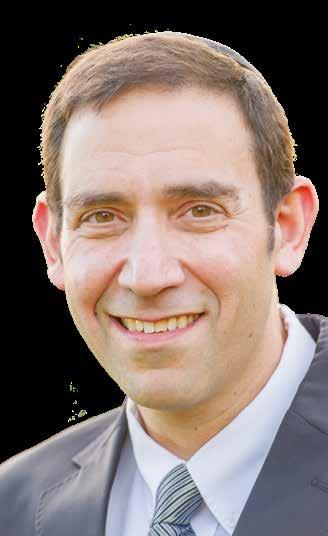
75 years after the third testimony, we are listening to the sound of the gradually emerging fourth testimony. It is obvious that this war is much more than a local geopolitical skirmish. It is also painfully obvious that the war isn’t just being waged with a terrorist group or with a seething Arab world. A broad coalition of Israel haters lines up to protest our just and moral war. Many of these fuming protesters are just anti-Semitic opportunists using the current conflict as an excuse to spew hatred and death threats at us. Many are even explicit about their desire to rid the world of our people. They still haven’t “received the message” of previous testimonies.
Many of the anti-Israel protestors though, do not contest our rights as a people, but are staunchly opposed to our rights to our land. To them this country never belonged to us, and we are nothing more than exploitative colonial invaders. The current cultural environment which has broadly condemned colonialism and has championed the rights of the oppressed appears to lend credibility to Israel haters. They naively and simplistically apply policies and viewpoints to our struggle to live peacefully in our homeland.
This is the first time since the formation of Israel that its right to exist is being broadly challenged. The phrase “from the River to the Sea” explicitly denies us any rights to our ancient homeland. Of course, the claim that Jews have the right to exist, but the state of Israel does not, is disingenuous. History has proven that
without a Jewish homeland Jewish survival is tenuous, at best. However, Israel has the right to exist independent of its role in preserving Jewish survival. This is our ancient homeland which Hashem delivered to us. We are not exploitative colonizers but a peaceful nation returning home, seeking goodwill, and aspiring to share prosperity with our neighbors.
This outcome of this struggle will provide the fourth testimony of history. The mishkan testimony reaffirmed Jewish selection even after our national sin. The Purim testimony reinforced Jewish selection even after exile. The State of Israel testimony verified Jewish destiny even after it had appeared to have faded through time and violently wrecked during the holocaust. The fourth testimony will affirm that not only are we Hashem’s chosen, and not only is our destiny eternal, but that we have the right to live in our ancient homeland awarded to us by Hashem. The fourth testimony, like previous testimonies, will be entered into the annals of history. Like previous testimonies it will be violently opposed, until its opponents fade away and it enters collective human consciousness.
The writer is a rabbi at Yeshivat Har Etzion/Gush, a hesder yeshiva. He has smicha and a BA in computer science from Yeshiva University as well as a masters degree in English literature from the City University of New York.
www.haroldschogger.com
South’s rebid of 2NT was an enquiry. North’s leap to 4♣ was a splinter, promising four-card spade support and shortage. This deal arose in a team game and both NorthSouth pairs bid to a spade game. Both West players led a low trump and dummy’s ten held the trick. At the first table, the declarer played quickly. His first move was to lead a heart to the king followed by a low heart back to the ace. When he led a third heart from table, East threw a diamond and declarer ruffed low. Now, hoping that West had the king of diamonds, declarer continued with a low diamond to dummy’s queen. However, East took this with the king and returned a trump. West played ace and another trump, taken by the ten in dummy. As declarer still had to lose a club and a heart, he finished one trick short of his contract.
At the other table, declarer reflected on the trump lead and decided that he need a 3:2 break there. Like the other declarer he played on hearts. However, after ruffing the third round of hearts, he led a diamond to the ace at trick five to lead a fourth round of hearts. When East discarded a second diamond, declarer ruffed it and then led the king of trumps (confident if the trumps were 3:2 then the defender with the ace would have begun with three cards in the suit). After winning the ace of trumps, West led a diamond to East’s king. The club return allowed declarer to claim have begun with three cards in the suit).

After winning the ace of trumps, West led a diamond to East’s king. The club return allowed declarer to claim 10 tricks 3 trumps, 2 Hearts, 2 Heart ruffs, 1 established Heart and 2 Diamonds losing just 1 club, 1 Diamond and 1 trump.

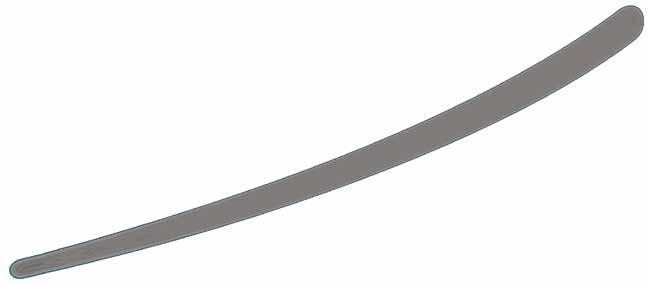
Parshat Pekudei is the last of the five Parshiot that discuss the Mishkan. The Parsha begins by giving us an accounting the gold, silver, and copper that were donated to the Mishkan. Then is described how Bezalel and Oholiab made the eight special garments that the Kohanim (priests)
had to wear: The shirt, pants, hat, sash, apron, breastplate, and crown.
Now that building of the Mishkan was complete, they set it up and put everything in its proper place. Then a cloud came down upon the Mishkan, and this showed everybody that G‑d’s presence had come to

The Israeli Post office has a special department for letters to G-d.
For all the letters arriving in Jerusalem from around the world addressed to G‑d. They are opened and placed into the cracks of the Kotel.
dwell within it.
This week’s haftorah describes the dedication of Solomon’s Temple, following the theme of this week’s Torah reading: the dedication of the desert Tabernacle.
The construction of the Holy Temple was completed. King Solomon assembled the leaders
and elders of the tribes to Jerusalem, and amidst great fanfare the priests transported the Ark from its temporary location in the City of David and installed it in the Holy of Holies chamber in the Holy Temple. Immediately, G‑d’s presence appeared in the Temple, in the form of a smoky cloud.
Facts about Parashat Pekudei
Number of Lines - 159
Number of Verses - 92
Number of Words - 1,182
Number of Letters - 4,432
This week’s Question:
One day every year, a Halacha of Shabbat is different than the rest of the year. What day is it?
Hint: it is to do with carrying
Last week’s Answer: I’m too young to be Parve. Who am I?
I am an undeveloped chicken egg. According to Rabbinic Law, chicken is considered "meat" and cannot be cooked or eaten with milk. An undeveloped egg inside a chicken is considered part of the chicken. Later, when the egg develops, it is considered a separate entity, even though it is still inside the chicken and is parve!
Email your name, age, where you live and the answer to office@thejewishweekly.com!
Next week’s paper will feature the answer and will mention one person who gave the correct answer!
Using all the shapes, can you make the shape on the right?
The goal of a word wheel puzzle is to create as many words possible with the letters in the word wheel.
Each word must contain at least three letters. You can only use each letter once and every word must have the letter in the centre of the wheel.
Last edition’s words
Here are some words you may have found from last week – you may have found more!
Use the area below to write the words you have found.
decals docile ideals ladies loaves oldies olives sailed scaled slaved sliced
Q: Why did the boy throw a bucket out the window? A: He wanted to see the waterfall.
Q: Why did the girl throw butter out the window? A: She wanted to see the butterfly.
Q: Why did the boy throw his watch out the window? A: He wanted to see time fly.
Q: What do you call a bee that can’t make up its mind? A: A Maybe
vocal voles aisled alcove calved calves closed cloves coaled coiled Answers 1. Lemonade 2. Comfortable 3. Little white lie 4. First aid 5. Outnumbered 6. A cut above the rest
social soiled solace solved valise vocals alcoved alcoves solaced vocalise vocalised
1. What does December have that other months don’t have?
2. If a red-house is made of red bricks, has a red wooden door, and a red roof, and a yellow-house is made of yellow bricks, has a yellow wooden door, and a yellow roof, then what is a green house made of?
3. What kind of coat is always wet when you put it on?
1. The letter D!
2. Glass!
Answers
Dingbat

Introduction
We all react differently to what is going on in Israel now. Some people have said they won’t make Aliyah ever, others delay their plans and will not come until things are worked out, and some people deliberately want to make Aliyah at this very moment! So for those coming during the war, or even in the months following the war, what do Olim need to know regarding shipping during such times?
1. Safety First
During challenging times like a war or conflict, safety remains the top priority. Olim should closely monitor the security situation in their intended destination in Israel. Before making any shipping arrangements, check with relevant authorities and experts to assess the safety of shipping routes.
2. Communication Is Key
Stay in close contact with your shipping company. They should provide you with up-todate information on the status of your shipments. Make sure you have multiple points of contact for the shipping company to ensure efficient communication.
3. Delays Are Possible
Shipping during a war or conflict may result in delays. Ports and transportation routes may face disruptions, affecting the timeline for your shipments. Be mentally prepared for these delays and stay flexible in your planning.
4. Insurance Is Crucial
Ensure that you have comprehensive insurance coverage for your shipments. In uncertain times, the risk of damage or loss to your belongings may increase. Adequate insurance will provide financial protection in case of unforeseen events.
5. Proper Documentation
Verify that all your shipping documents are in order. This includes bills of lading, customs documents, and any permits required for shipping. Keep digital and physical copies of essential documents for reference.
6. Shipping Routes
Discuss the available shipping routes with your shipping company. During challenging times, some routes may be more secure or efficient than others. Your shipping provider can advise you on the best options.
7. Storage Facilities
In case your shipments arrive in Israel during a period of heightened security concerns, you might need storage facilities for your belongings. Discuss storage options with your shipping company in advance.
8. Customs and Regulations
Understand Israel’s customs regulations and any specific requirements related to shipping during challenging times. Familiarize yourself with the customs process and be prepared for potential inspections.
9. Seek Professional Assistance
Consider hiring a customs broker or a relocation expert who can guide you through the process. They have the knowledge and experience to ensure a smooth transition for your shipments.
10. Emotional Support
Moving during challenging times can be emotionally taxing. Seek support from friends, family, and support networks to help you through the transition. Reach out to local support groups in Israel to connect with others who have experienced similar challenges.
Conclusion
Shipping during a war or conflict presents unique challenges, but with careful planning and the support of professionals, it’s possible to navigate the process successfully. Your safety and the safety of your belongings should always be the top priority. By staying informed, communicating effectively, and being prepared for potential delays, you can make your Aliyah a successful and secure transition, even during challenging times.
Ben ScheinerMARTIN FRYDENSON - ROUNDTREE REAL ESTATE
Roundtree Real Estate are your local experienced Estate Agent having been established on the High Street since 2009. We are both ARLA and NAEA Propertymark regulated and we are here to offer you expert advice in Property Sales, Lettings, Commercial and Full Management Services, covering Hendon, Golders Green, Finchley, Colindale and surrounding areas. We have built long standing relationships with all our clients and should you have any property related queries please do contact us.

Contact: 020 8203 2111 mail@theroundtree.com www.theroundtree.com
JACOB BERNSTEIN
A member of the APCC, specialising in financial services compliance for: Mortgage, Protection and General Insurance Intermediaries;
• Lenders, Credit Brokers, Debt Counsellors and Debt Managers; Alternative Investment Fund Managers; E-Money, Payment Services, PISP, AISP and Grant-making Charities.

Contact:
020 7781 8019 info@richdale.co.uk www.richdale.co.uk
MARC OVITS – BA (HONS) APFS CERT PFS (DM)

Over 25 years of successful experience in financial services including 11 years of investment banking experience.
Offering expert independent financial advice to individuals, businesses, charities and trusts. Individual services:- Wealth Management, Investment, Retirement, Estate/IHT, protection planning, Tax Mitigation and Cash Management Solutions
Business & Charity services:- Investment Planning, Business Succession & Business Exit Planning, Business Protection, Corporate Pensions, Employee Benefits, Cash Management Solutions, Profit extraction strategies

JEWISH CARE
Alpha Wealth Management
Contact:
020 8203 6920 info@alphawm.co.uk www.alphawm.co.uk
Jewish Care is the largest health and social care organisation serving the Jewish community in London and the South East. Our vital services touch the lives of 10,000 people every week. We provide services and offer a wide range of support groups to older people, people with mental health needs, Holocaust survivors, people living with dementia, people with a variety of needs and carers support.

Contact:
020 8922 2222 helpline@jcare.org www.jewishcare.org
MARTIN HEIMAN – SMARTINET
We’ve been providing businesses with all of their communication needs since 2010. We specialise in supplying businesses with VoIP Packages, Mobile Plans, Broadband, Card Merchant Services, Leased Lines, On-Hold Marketing, and Call Centre Services. Smartinet, your reliable and efficient business communications provider.

Contact:
0333 613 0000 connect@smartinet.co.uk smartinet.co.uk
MATRIX SURVEYORS LIMITED

Offering a range of building surveying services and specialising in party wall matters, nationwide, for both consumers and businesses, including; -
• Pre-acquisition Surveys
• Party Wall Matters
• Defect Inspections
• Schedules of Condition
• Insurance Reinstatement Costs Assessments
Contact:
Toli Moscovitz BSc (Hons) MRICS
0161 823 6973 info@matrixsurveyors.co.uk www.matrixsurveyors.co.uk
STEPHEN MORRIS SHIPPING
• Planned Preventative Maintenance Schedules
• Construction Project Management
• Licence for Alterations
• Insurance claims

With almost 40 years experience, our company has the ability to move household and personal effects and antiques and fine art with the professionalism and care that comes from that experience coupled with an attention to detail.
We construct our own Tri-Wall and wooden packing cases on site and employ full-time art installers and handymen for those ‘extra’ jobs that always need doing on a move or installation. And size is no limitation – we have moved trains, boats and planes across the world and even bridges and a 5,000 seater tent!

KOSHER DELI
Contact:
020 8832 2222 info@shipsms.co.uk www.shipsms.co.uk

Kosher Deli was established with the intention of making kosher meat and poultry affordable for all with the convenience of multiple locations and a comprehensive delivery service. All this without compromising on kashrus or quality.
Locations in: Golders Green, Hendon, Temple Fortune, Edgware, Borehamwood & Manchester

Contact:
020 8381 4450
info@kosherdeliuk.co.uk www.kosherdeli.co.uk
in association with richdale
ALIYAH ADVISORS - GARY BROWN - PRACTICAL ALIYAH ADVICE
Book a FREE meeting with UKAA’s founder Gary Brown, who will go through your particular needs and wants on a the PRACTICAL side of leaving your country of origin and/or living in/moving to Israel. This is both for pre and post- Aliyah Olim. This FREE meeting will allow Gary to advise on who you need to speak with for each requirement and when in the year you should approach them. Confidentiality assured.

Contact:
+972 (0)2 372 3775 / +44 (0)20 3 989 5080 info@aliyahadvisors.com aliyahadvisors.com/aloh-naaleh/
SIMON MOSCOVITZ BSC (HONS) – EUROTEK UK LIMITED
We are a well-established and successful Managed I.T. Services Provider (MSP) with a clear sense of purpose. We plan, design and enable the procurement, implementation, protection and management of a wide range of modern technologies through an earned and trusted partnership with our clients across the UK. We enable our clients to be operationally efficient by successfully embracing their digital transformation journey.





today and



